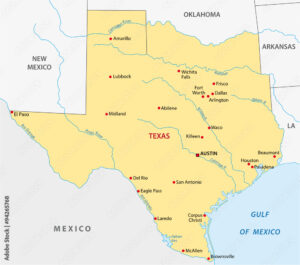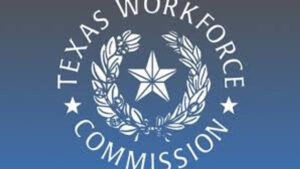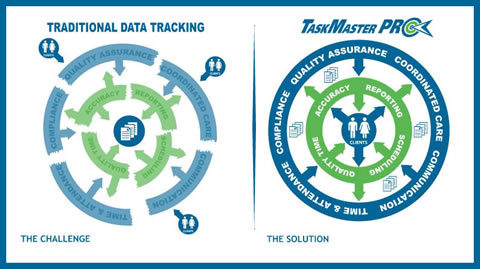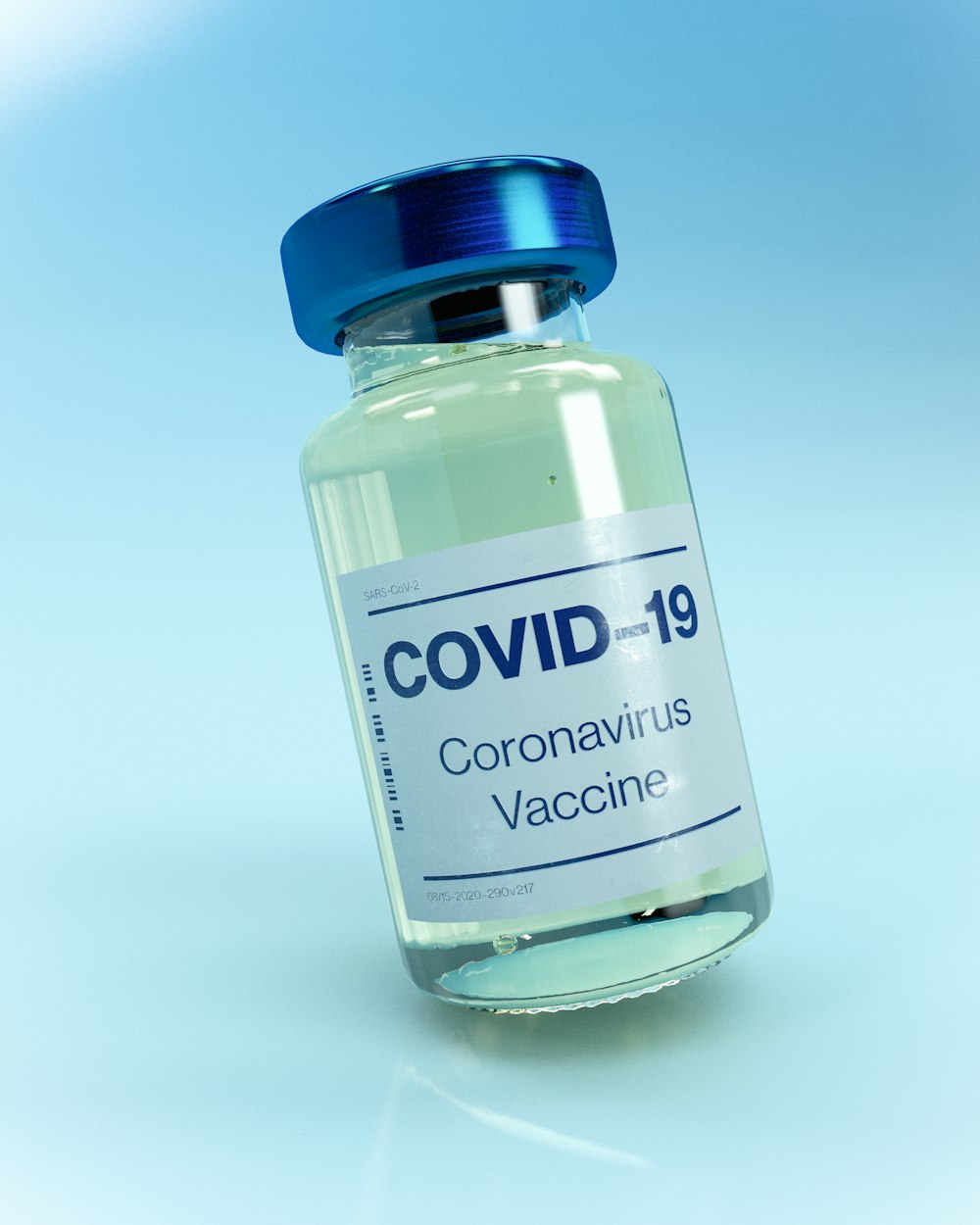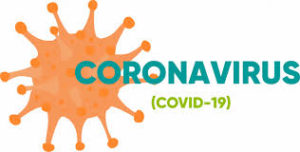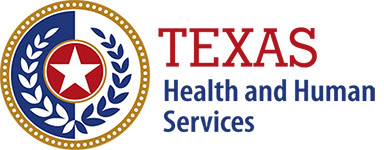Twogether Updates
Offsite Investigations Requirements Same As Onsite
July 30th, 2022
HHSC Reminds LTC Providers of Offsite Investigation Requirements (PL 2022-15)
HHSC has published Provider Letter 2022-15 – Offsite Review Responsibility Requirements (PDF).
The letter reminds facilities and agencies that they have the same obligation to respond to an investigation that HHSC conducts virtually and offsite as they do during an investigation that HHSC conducts in-person and onsite.
How to Adjust a Previously Adjusted Claim: For Dates Beginning May 1st, 2022 (HCS/TxHmL)
July 30th, 2022
The TexMedConnect User Guide has instructions for adjusting a previously submitted claim with dates of service on May 1 or later. However, the guide does not have instructions for adjusting a previously adjusted claim.
The user guide will be updated to include these instructions. In the meantime, follow the steps in the full alert for adjusting a previously adjusted claim in TexMedConnect.
Non-Waiver Services on The IPC Must Be Entered Into LTC Online Portal (HCS Providers)
July 30th, 2022
Entering Non-Waiver Services in the LTC Online Portal in the HCS Program
Effective immediately, Home and Community-based Services Program providers are responsible for entering all non-HCS Program and non-Community First Choice services into the HHSC data system.
Non-HCS and non-CFC services data are entered in the “Non-Waiver” services tab of the individual plan of care in the Long-term Care Online Portal. During a meeting to develop or revise an IPC, the service coordinator must provide information to the HCS Program provider about all non-HCS and non-CFC services and supports a person receives.
Per 40 Texas Administrative Code Section 9.159(c), an IPC must be based on a person’s person-directed plan. The IPC must specify the type and amount of each HCS service, CFC service (except CFC support management), and the non-HCS and non-CFC services and supports provided during the IPC year.
The service coordinator is still responsible for entering non-HCS and non-CFC services in the LTC Online Portal for HCS services delivered through the Consumer Directed Services option
FAQ’s For ARPA Retention Payments for HCBS & TxHmL
From HHSC:
“The FAQ document has been updated to reflect additional questions that were received during the June 8, 2022 webinar.
Some questions were similar so HHSC combined the main themes of questions received and provided the answer/response below. The FAQ has also been updated to reflect an extension of the deadline for the attestation and initial report. It was July 1, 2022 and has been extended to August 15, 2022.
If you have a question not addressed by this document, please contact: PFDLTSS@hhs.texas.gov.
If you have questions about the HHSC HCBS ARPA spending plan, please contact Medicaid_HCBS_Rule@hhsc.state.tx.us. The webinar recording, which includes a step-by-step walk-through of the attestation and reporting, is available here: https://attendee.gotowebinar.com/recording/8631581217532733954
HHSC is providing a temporary rate add-on for certain home and community-based services delivered between March 1, 2022 and August 31, 2022. Information regarding the temporary rate add-ons can be viewed here: https://pfd.hhs.texas.gov/long-term-services-supports.”
Below is the full FAQ document
https://pfd.hhs.texas.gov/sites/rad/files/documents/long-term-svcs/2022/2022-hcbs-arpa-faq.pdf
ARPA Retention Payments Now Beginning: For Claims Processed in CARE from March 1st-April 30th, 2022
July 27th, 2022
American Rescue Plan Act HCBS & TxHmL Provider Retention Payments
HCBS ARPA Payments in CARE/HCBS Enhanced FMAP Payments in CARE
The Texas Health and Human Services Commission implements American Rescue Plan Act (ARPA) Home and Community-Based Services (HCBS) provider retention payments.
HCS and TxHmL claims processed on the ID CARE system for dates of service between March 1–April 30, 2022, meeting the eligibility requirements for receiving the ARPA rate add on, will begin to be processed toward the end of July.
Providers will receive three new reports that will include the ARPA add on payments.
NOTE: These same reports are currently being received for regular claim payments under a different Report ID.
Here are the 3 new ARPA reports are provided below:
Approved To Pay Report: HC064110.TXT
Claims Detail Extract: GC063979.TXT
Remittance and Status Report: HC064112.TXT
All providers receiving these ARPA payments will see these new reports delivered every Tuesday morning to their current folders. HHSC is processing payments at the client ID level. Due to the volume of claims, not all providers will receive ARPA payments each week. These ARPA payments will not be viewable within the ID CARE online system at this time but will be reflected in reports.
Questions about the HCBS spending plan can be sent to medicaid_hcbs_rule@hhsc.state.tx.us.
Questions about rates, attestation or reporting: pfd-ltss@hhs.texas.gov.
Monthly Provider COVID-19 Reporting Requirements- Compliance with SB 809 and Rider 143
July 18th, 2022
Monthly Reporting Required
REMINDER FROM HHSC: Completion of the Senate Bill 809/Rider 143 Monthly Report is REQUIRED of all participating providers, regardless of whether a provider or facility has received additional federal funding during the reporting month.
All participating providers must complete the Senate Bill 809/Rider 143 Monthly Report every month, even if they did not receive additional federal funds during the reporting month. The reports are due no later than 5 p.m. on the 1st day of the month following each reporting period. (For example, the report for July 2022 data will be due by 5 p.m. on August 1, 2022.)
HHSC regularly updates the list of healthcare institutions who must submit reports in compliance with Senate Bill 809 or Rider 143. The list can be found here under the SB 809/Rider 143 COVID-19 Reporting Healthcare Institution List dropdown.
Note: this list is derived at a point in time (currently as of July 1, 2022) and not all-inclusive as providers may enroll or change at various times. The list will be updated every Friday by close of business. Any provider that is identified as a “Health Care Institution” as defined in Section 74.001 of the Civil Practice and Remedies Code is required to complete the reports. The list has been updated to align with licensing agencies.
For more information about the Senate Bill 809/Rider 143 Monthly Report, please review this list of frequently asked questions and responses and visit the HHSC Provider Finance Department Communications web page.
If you have question(s) about the content of the report or need technical assistance, please email the HHSC Provider Finance Department at HHSC_PFD_Survey@hhs.texas.
January 9th, 2022
Reminder: SB 809 / Rider 143 COVID-19 Reporting
The Health and Human Services Commission (HHSC) is posting the list of healthcare institutions, as identified by HHSC, who must submit reports in compliance with Senate Bill 809 or Rider 143. The list also identifies those providers who have not submitted a SB 809/Rider 143 Report. The list can be found on the Provider Finance website under SB 809/Rider 143 COVID-19 Reporting Healthcare Institution List. Note: this list is for the reporting periods of January 2020 – August 2021, September 2021, and October 2021, which were all due 5:00 PM CST on December 1, 2021.
If you believe there is an error in the list, please email us with “SB 809/Rider 143 Reporting” in the subject line by 5:00 PM CST on January 5, 2022.
If all required reports by a provider have not been received by 5:00 PM CST on January 5, 2022, HHSC will begin immediate enforcement of disciplinary actions as authorized by Title 1 Texas Administrative Code Section 355.7201 (TAC) related to the penalties for failure to report. The health care institutions that have “not submitted” are deemed non-compliant at this time.
The initial report required from providers includes funding and cost data covering the period January 2020 through August 2021. The subsequent reports will be ongoing and will cover a single month; each monthly report will be due on the 1st of the second following month following the end of the month (for example, the report for November 2021 data will be due January 1, 2022).
December 30th, 2021
GovDelivery Update: SB 809 / Rider 143 COVID-19 Reporting
This is a notification that HHSC has identified an error in the list of healthcare institutions that have submitted and have not submitted a SB 809 / Rider 143 report. HHSC has now resolved this matter.
HHSC has published a corrected list on the Provider Finance website under SB 809/Rider 143 COVID-19 Reporting Healthcare Institution List.
If you have any questions or concerns regarding this list, please email us with “SB 809/Rider 143 Reporting” in the subject line by 5:00 PM CST on January 5, 2022.
December 14th, 2021

Very Important News! The due dates for the SB 809 Monthly COVID-19 Reports have changed.
Previously the reports were due on the 15th of the month following the month which the report covered. They are now due on the 1st of the second following month. Example: The report covering November is now due January 1, 2022 rather than December 15, 2021. See updated message on HHSC’s webpage below.
The initial report located here includes funding and cost data covering the period January 2020 through August 2021 and is due October 1, 2021. The subsequent reports (located here) will be ongoing and will cover a single month; each monthly report will be due on the 1st of the second following month following the end of the month (for example, the report for September 2021 data will be due November 1, 2021.)
November 30th, 2021
November 14th, 2021
PROVIDER REPORT GRACE PERIOD
HHSC is granting a “grace period” to allow providers time to come into compliance if they fail to meet any deadlines between October 1, 2021, and November 30, 2021. While the deadlines to report will not change, HHSC will not take any of the available actions against a provider as long as the provider submits all the required reports due between October 1, 2021, and November 30, 2021. The grace period ends December 1, 2021.
Because vendor hold can be imposed for lack of compliance and non-compliance will impact a provider’s eligibility to receive the state-controlled ARPA funds made available through SB 8 (Nelson, 3rd Special Session). Please share this information!
Very Important!!! State-Controlled ARPA Funds in relation to COVID-19 Reporting Requirements: Section 33, Subsection (b) of SB 8 states “it is the intent of the legislature that HHSC prioritizes grants to grantees that comply with Rider 143 (SB 1, 87th Session) and SB 809 (87th Session).” [Rider 143 DOES NOT apply to ICFs/IID, HCS, TxHmL, CLASS or DBMD]. This statutory provision may result in many providers not being eligible to receive these funds. Many providers may have overlooked the notices related to the monthly reporting requirement or believed that the requirement did not apply to them, thus they have asked whether HHSC would be amenable to allowing providers to come into compliance before the grants are distributed.
HHSC has said that providers have until December 1st, 2021 to come into compliance. Non-compliance during this ‘grace’ period would not impact one’s eligibility, but non-compliance after the grace period would have an adverse impact on a provider receiving the grant. While excellent news, we would urge providers to comply with the requirement and submit any reports previously not submitted. As stated under the COVID-19 Monthly Reporting Requirement section of this message, non-compliance can also result in vendor hold.
For questions about the reporting process, email HHSC Provider Finance Survey for assistance at: HHSC_RAD_Survey@hhs.texas.gov
Information and FAQs Please visit the HHSC Provider Finance Department Communications web page for more information about the report. Then click on “Monthly SB 809/Rider 143 COVID-19 Reporting.”
October 3rd, 2021
Don’t Forget, The 1st Monthly Ongoing Provider Report is Due October 15th, 2021!
The ongoing SB 809 and Rider 143 report and further information—including a PDF version of the report questions—are available on the HHSC Provider Finance Department website, and may be accessed on the main webpages for Acute Care Services, Hospitals and Clinic Services, and Long Term Services and Supports. Please note that this Microsoft Form link is separate from the initial report that covered the period of January 31, 2020 – August 31, 2021.
Grace Period
HHSC is granting a “grace period” to allow providers time to come into compliance if they fail to meet any deadlines between October 1, 2021, and November 30, 2021. While the deadlines to report will not change, HHSC will take no action against a provider as long as the provider submits all required reports due between October 1, 2021, and November 30, 2021, prior to the end of the grace period. The grace period ends December 1, 2021.
Sept. 18th, 2021
FAQ’s For Compliance With SB809 & Rider 143: Monthly Provider Reporting Requirements Concerning COVID-19 Funding
Introduction:
The 87th Texas Legislature directed the Health and Human Services Commission (HHSC) to report federal COVID-19 funding from specific health care institutions, and certain costs those providers have spent related to COVID-19 public health emergency. HHSC has developed a monthly report to obtain the information required by Rider 143 (.pdf) (2022-23 General Appropriations Act, Senate Bill (S.B.) 1, 87th Legislature, Regular Session, 2021 (Article II, HHSC, Rider 143) and S.B. 809 (.pdf) (87th Legislature, Regular Session, 2021).
Frequently Asked Questions (FAQ):
View the HHSC created list of “frequently asked questions ” (FAQ) (.pdf) with the answers to common questions to assist providers in completing the report.
Reporting:
The initial report located here includes funding and cost data covering the period January 2020 through August 2021 and is due October 1, 2021. The subsequent reports will be ongoing and will cover a single month; each monthly report will be due on the 15th of the month following the end of the month (for example, the report for October 2021 data will be due November 15, 2021.
You will receive a confirmation once your report has been fully completed and submitted.
A pdf version of the report is available here (.pdf) for review prior to submitting the report.
If you are unable to meet the reporting deadline please contact the Provider Finance Department at HHSC_RAD_Survey@hhs.texas.gov for assistance.
Failure to submit:
Failure to complete and/or submit the required monthly report(s) on time will result in:
- A report to the Department of State Health Services or HHSC Regulatory Services and potential adverse actions on your licensure and/or
- HHSC may initiate payment holds for providers who fail to submit the required monthly reports.
HHSC is granting a “grace period” to help providers come into compliance if they fail to meet any deadlines between October 1, 2021, and November 30, 2021. While the deadlines to report will not change, HHSC will not any of the actions listed above against a provider as long as the provider submits all the required reports due between October 1, 2021, and November 31, 2021. The grace period ends December 1, 2021.
List of Some Of The Providers Required to Complete Reports:
Here are some of the following entities that are required to complete the report:
- Intermediate Care Facilities for Individuals with an Intellectual Disability or Related Conditions (ICF/IID);
- Community Living Assistance and Support Services (CLASS) or Case Management Agency (CMA) Providers;
- Deaf-Blind with Multiple Disabilities (DBMD) Providers;
- Home and Community-Based Services (HCS) Providers;
- Texas Home Living (TxHmL) Providers;
Please email the HHSC Provider Finance Survey for assistance at HHSC_RAD_Survey@hhs.texas.gov.
September 18, 2021
As required by Senate Bill (SB) 809 and Rider 143 of the 87th Legislature (regular session)(copied below), HHSC will begin collecting information on the total value and uses of COVID-19 related Federal funds through monthly reports. The first report is due October 1, 2021. Reminder of Publication of Proposed Rules
HHSC published proposed rules related to SB809 and Rider 143 in the Texas Register on August 13, 2021, pages 4928-4931. The comment period ends September 3, 2021.
Rider 143
Reporting Requirement: COVID-19 Funding to Nursing Facilities and Hospitals. Out of funds appropriated above in Strategy B.1.1, Medicaid Contracts and Administration, the Health and Human Services Commission (HHSC) shall develop a report detailing the total value and uses of COVID-19-related Federal Funds, including Provider Relief Funds, provided directly to nursing facilities and hospitals contracting with HHSC since the beginning of the public health emergency. The report should include any temporary rate increases provided to nursing facilities related to the COVID-19 pandemic. Any facilities that do not provide information requested by the commission necessary to complete the report shall be identified in the report. The first submission of the report shall also include a description of any requirements implemented for nursing facilities in response to the COVID-19 pandemic, the cost to nursing facilities to implement the requirements, and recommendations on whether or not the requirements should be continued after the end of the public health emergency. HHSC shall submit the report to the Governor, Legislative Budget Board, and any appropriate standing committee in the Legislature on December 1st and June 1st of each fiscal year. The format and content of the report shall be specified by the Legislative Budget Board and posted on the HHSC website. Appropriations in Strategy A.2.4, Nursing Facility Payments, for fiscal year 2023 are contingent on the submission of the reports due December 1, 2021 and June 1, 2022.
Please look for forthcoming announcements from HHSC regarding these important reporting requirements. For more information, please contact HHSC Provider Finance.
Prepare for Ending Continuous Medicaid Coverage Now-Before The Public Health Emergency Ends
July 14th, 2022
Important Medicaid Coverage-Don’t Wait-Please Respond to Medicaid Letters- Changes To Occur in Medicaid Coverage
After Public Health Emergency Ends
This information letter gives service coordinators, case managers, and providers information to help individuals prepare for ending continuous Medicaid coverage. HHSC requests providers support the information campaign –Don’t Wait –Respond and Update! –by communicating with individuals and incorporating campaign materials into Medicaid operations. In otherwards, our individuals currently covered, may not automatically be qualified as covered once PHE ends. Act now and respond to all Medicaid letters telling you that your individual may not qualify when PHE ends. Shout out to all SC’s and Case Managers!
PL-2022-39
https://www.hhs.texas.gov/sites/default/files/documents/il-2022-39.pdf
16th Annual AccessAbility Fest and AbilitySTRONG Parade on Saturday, October 1st, 2022 at Hemisfair (San Antonio, Tx)
July 10th, 2022
Date: October 1st, 2022 (San Antonio, Tx)
2022 AccessAbility fest & abilitySTRONG Parade
It’s time to REGISTER! At disABILITYsa, we are excited to host the 16th Annual AccessAbility fest and abilitySTRONG Parade on Saturday, October 1st, 2022 at Hemisfair.
Early bird discounts end on August 15th, 2022!
* Sponsorship Opportunities * Exhibitor Registration * Parade Entries * Program Partners * Information Only * and more! *
You will have a front-row seat to share your programs, resources, and opportunities to every individual, caregiver, and other providers in attendance. Every attendee will be able to interact through the AccessAbility fest gateway to resources, opportunities and recreation for individuals facing barriers to independence and inclusion due to a physical, developmental, sensory, and/or mental health challenge.
SATURDAY, OCTOBER 1ST, 2022 Schedule of Events
9:00am – 10:00am
abilitySTRONG Parade
9:00am – 2:00pm
Resource Festival
10:30am
Main Presentation/Ceremony
The deadline to REGISTER as an exhibitor and be guaranteed an exhibitor booth is Friday, September 2nd, 2022 at 5pm.
We look forward to you joining us for our 16th Annual AccessAbility fest, should you have any additional questions you are welcome to email lisa@disabilitysa.org or call the office at 210-704-7262 or email Kameron Chicoine at kameron.exceptionalkids@gmail.com.
CLICK LINK TO REGISTER: https://hipaa.jotform.com/221468522820150
“Person-Centered Thinking” Training Available Online from IntellectAbility: Please Take Note HCS/TxHmL/ ICF Providers
Juliy 11th, 2022
Our good friend at IntellectAbility, Patrick Lane has provided a link where providers or anyone else interested can register for online Person-Centered Thinking training. FYI-this is a requirement in the HCS/TxHmLTAC rules for all persons who are a part of the development of the Implementation Plan (IP), to have this training within the first 2 year of hire.
Staff Member and Service Provider Requirements
The session is a $275 per person.
This is a 3-day series of zoom sessions, each 6 hrs long.
There are multiple live Zoom training dates listed, so take your pick.
https://replacingrisk.com/virtual-person-centered-thinking-training/
To learn more about IntelectAbility, here is their main website page https://replacingrisk.com/
TAC 9.177 (d) A program provider must:
(1) conduct initial and periodic training that ensures staff members and service providers are qualified to deliver services as required by the current needs and characteristics of the individuals to whom they deliver services, including the use of restraint in accordance with §9.179 of this subchapter (relating to Certification Principles: Restraint); and
(2) ensure that a staff member who participates in developing an implementation plan for CFC PAS/HAB completes person-centered service planning training approved by HHSC:
(A) by June 1, 2017, if the staff member was hired on or before June 1, 2015; or
(B) within two years after hire, if the staff member was hired after June 1, 2015.
Error in HHSC Reminder Notice-Due Date For SB 809 Data
July 11th, 2022
Shared Article From IntellectAbility: “Long-haul COVID in People with IDD”
Thought this was great info. and wanted to share-
From IntellectAbility

Long-haul COVID in People with IDD
“People with intellectual and developmental disabilities (IDD) are at a greater risk of infection and poorer COVID-19 related health outcomes than the general population. Prevalence of comorbidities, living in congregate settings, and difficulties practicing preventative measures contribute to this risk; however, the inability to effectively communicate symptoms of illness may be the most significant hurdle to identifying and managing symptoms of COVID-19 infection, especially for those experiencing the lasting effects of long-haul COVID.”
Download this 10-page document for more info on symptoms in individuals with “Long-haul COVID-19” issues
Technical Issues Resolved: FY 2023 Contract Amendment Open Enrollment July 1, 2022 – August 1, 2022
July 4th, 2022
The Provider Finance Department (PFD) Open Enrollment Portal experienced technical difficulties. Those issues have been resolved. The portal is now available for providers to complete Open Enrollment for the Attendant Compensation Rate Enhancement and Direct Care Staff Enhancement programs and Liability Insurance Rate Add-ons for Nursing Facilities.
The PFD portal is available. Please click here to access the portal. The PFD portal will be open from July 1, 2022 to August 1, 2022. For questions, contact HHSC Provider Finance Department: CostInformationPFD@hhs.Texas.gov.
The Texas Health and Human Services Commission (HHSC) announces Open Enrollment for the following programs:
- Attendant Compensation Rate Enhancement Program for Community Living Assistance and Support Services (CLASS) — Direct Service Agency (DSA)
- Home and Community-based Services (HCS)
- Texas Home Living (TxHmL)
- Intermediate Care Facilities for Individuals with an Intellectual Disability or Related Conditions (ICF/IID)
- and several other waivers and LTC programs
For this state fiscal year (SFY) 2023, enrollment will be open until Aug 1, 2022. Title 1, Texas Administrative Code (TAC) Sections 355.112 and 355.308 states if the last day of open enrollment is on a weekend day, state holiday, or national holiday, the next business day will be considered the last day requests will be accepted. This enrollment pertains only to providers contracted with HHSC as described in 1 TAC Sections 355.112 and 355.308.
Providers contracted directly with a Managed Care Organization (MCO) will continue to enroll for rate enhancement through that MCO. They may not enroll through the process discussed below without a fee-for-service contract with HHSC.
Providers who participate in this optional program receive additional funds to provide increased wages and benefits for attendants or direct care staff. They must comply with enhanced staffing or spending requirements on future cost or accountability reports.
To request participation or an increase in level, complete an online Enrollment Contract Amendment (ECA) by 5:00 p.m. on August 1, 2022. The ECA must be completed online. No faxes, mail, or emails will be accepted. This letter does not include any forms. The ECA, all instructions, and worksheets are available on the HHSC Provider Finance Department Website at: https://pfd.hhs.texas.gov/long-term-services-supports.
July 5th, 2022
Use the following instructions to access these resources:
1. Open the Provider Finance Long-term Services & Supports website;
- select the appropriate program;
- scroll down to the heading “Rate Enhancement – Attendant Compensation” or “Rate Enhancement – Direct Care Staff Compensation” (for Nursing Facility); and
- click on “View 2023 Rate Enhancement.”
Access the ECA by clicking on “Enrollment Contract Amendment Form” under “Other Documents Important to the 2023 Enrollment Information.”
In the same “Other Documents” section, instructions for completing the ECA are available by clicking on “Enrollment Contract Amendment Instructions.” It is important to review the instructions prior to completing the ECA.
The Open Enrollment Video is available under “View 2023 Rate Enhancement” on the Provider Finance Department website. There are no rate enhancement webinars for fiscal year 2023.
For more information, please visit the Provider Finance website.
HCS and TxHmL (CDS Services): Trending Issue Support, Volume 4
July 5th, 2022
Since May 2, Home and Community-based Services and Texas Home Living program providers, local intellectual and developmental disability authorities, and financial management services agencies billing on behalf of Consumer Directed Services have been submitting claims and forms to Texas Medicaid and Healthcare Partnership.
TMHP has received feedback from providers indicating more support is needed. Read the full alert.
Provider Information Validation on LTC Claims is Now Published: ICF/IID Programs
July 5th, 2022
Information Validation on LTC Claims IL 2022-35
IL 2022-35 is posted on the HHS nursing facility and Intermediate Care Facilities for Individuals with an Intellectual Disability or Related Conditions webpages.
Effective June 10, provider information on long-term care claims is being validated using data stored in the National Plan and Provider Enumeration System and the Texas Medicaid and Healthcare Partnership Provider Enrollment and Management System.
This enhancement ensures the consistency of provider information and helps avoid claim rejection. Attending provider information is validated on NF and ICF/IID claims. Referring provider information is validated on hospice claims.
Email questions to the Managed Care Initiatives and ICF/IID Questions inboxes.
In-Home Day Habilitation Revision To Temporary Policy Changes During COVID-19
July 5th, 2022
COVID-19: HHSC Publishes In-Home Day Habilitation Information for Program Providers (Replaces IL 2022-32)
IL 2022-36 is posted on the HHS webpage for Home and Community-based Services, Texas Home Living, local intellectual and developmental disability authority, and financial management services agency program providers.
HHSC is temporarily waiving certain requirements in Section 3710, 4381.3, 4381.7(6) and 4381.7(7) of the HCS Billing Guidelines and TxHmL Guidelines. This is due to COVID-19 and provides access to needed day habilitation services.
HHSC has published a revision to this guidance in IL 2022-36 In-Home Day Habilitation Information for Program Providers for COVID-19 (PDF). This replaces IL 2022-32.
It extends the temporary guidance through Aug. 31, unless the COVID-19 public health emergency ends sooner. HHSC will provide guidance if there are any changes.
Email questions to HCS Policy.
May 30th, 2022
The extension for temporary policy for In-Home DH goes through June 30th, 2022 now.
COVID-19: HHSC Publishes In-Home Day Habilitation Information for Program Providers (IL 2022-32)
IL 2022-32 is posted on the HHS webpage for Home and Community-based Services, Texas Home Living, local intellectual and developmental disability authority, and financial management services agency program providers.
HHSC is temporarily waiving certain requirements in Section 3710, 4381.3, 4381.7(6) and 4381.7(7) of the HCS Billing Guidelines and TxHmL Guidelines. This is due to COVID-19 and provides access to needed day habilitation services.
HHSC has published a revision to this guidance in IL 2022-32 In-Home Day Habilitation Information for Program Providers for COVID-19 (PDF). This replaces IL 2022-28.
It extends the temporary guidance through June 30, unless the COVID-19 public health emergency ends sooner. HHSC will provide guidance if there are any changes.
HHSC Publishes In-Home Day Habilitation Information for Program Providers for COVID-19 (IL 2021-45)
Texas HHSC is temporarily waiving certain requirements in Section 3710, 4381.3, 4381.7(6) and 4381.7(7) of the Home and Community-based Services Billing Guidelines and the Texas Home Living Billing Guidelines. This is due to COVID-19 and to provide access to needed day habilitation services.
HHSC has published a revision to this guidance in IL 2021-45 In-Home Day Habilitation Information for Program Providers for COVID-19 (PDF). This replaces IL 2021-39. It extends the temporary guidance through Oct. 31, 2021 unless the public health emergency ends sooner. HHSC will update if there are any changes.
July 13 Deadline for Informal Comments on HHS Draft Rules: HCS & CFC Programs
July 4th, 2022
Don’t Forget, Informal Comments on HCS & CFC Draft Rules Are Due by July 13th!
Texas HHS is accepting comments from stakeholders on the following draft rules:
The comment period ends July 13.
Email comments to Long-term Care Regulation Policy and Rules.
LTC Services & Supports Page: Provider Finance Department
July 3rd, 2022
Overview
The Provider Finance Department (PFD) develops reimbursement methodology rules for determining payment rates or rate ceilings for recommendation to the Health and Human Service as Commission (HHSC) for Medicaid payment rates and non-Medicaid payment rates for programs operated by the Health and Human Services Commission (HHS) and the Department of Family and Protective Services (DFPS). PFD develops payment rates or rate ceilings in accordance with these rules and agency policy guidelines.
For more information please click on this link below for the website
Map of Texas Local IDD Authorities (LIDDA’s)
Texas Local IDD Authorities (LIDDA)
Click on link below:
https://www.google.com/maps/d/viewer?mid=1x52WNDpmumg3J5ANB-G1aWfCSFFnHKM&usp=sharing
HCS Group Home Vacancy Search
HCS Group Home Vacancy Search
To find out which companies have group home vacancies, you may go to the following link: https://resources.hhs.texas.gov/find/HCS. Please be sure if you are an HCS provider that you are reporting any vacancies in your group home to the state.
Metrocare: 2022 Conference for Intellectual & Developmental Disabilities (August 12th, 2022) Dallas, Tx
June 23rd, 2022
2022 Conference for Intellectual & Developmental Disabilities
Innovating, Developing & Defining the Future of Service Delivery
August 12, 2022
Norris Conference Centers – Dallas Northpointe Centre
(Located in: Brightwood College in Dallas: 12005 Ford Rd #200, Dallas, TX 75234)
The exhibitor information is available now. See link below. Registrant information to be posted later this month.
Please click on this link for Exhibitor Information
HHSC Grant Available: Intermediate Care Facilities – COVID-19 in Healthcare Relief
June 23rd, 2022
This is a notice to potential applicants that Request For Applications (RFA) No. HHS0011334 has been posted. This notice is from Texas Health and Human Services Commission (HHSC) Procurement and Contracting Services (PCS).
The RFA and related attachments can be located on the HHS Grants Website: https://apps.hhs.texas.gov/pcs/HHS0011334/
Refer to the RFA at the best walk-in clinic for the required submission method(s), Deadline for Submitting Questions or Requests for Clarification, and Deadline for Submission of Applications.
|
Grant Name: |
Intermediate Care Facilities – COVID-19 in Healthcare Relief |
|
RFA Number: |
HHS0011334 |
|
RFA Executive Summary: |
The Health and Human Services Commission (HHSC or System Agency) is accepting applications for the Intermediate Care Facilities – COVID-19 in Healthcare Relief RFA. The purpose of this Request for Applications (RFA) is to distribute funding for Critical Staffing Needs to Intermediate Care Facilities for Individuals with an Intellectual Disability or Related Condition (ICFs/IID) in Texas that have been affected by the COVID-19 pandemic. Applicants should reference the RFA Article II, Scope of Project, for further detailed information regarding the purpose, background, eligibility criteria, eligible activities and other requirements of this funding. |
IMPORTANT: Download the complete RFA package and all associated documents from the HHS Grants Website. Read and review all documents in the RFA package carefully before completing and submitting an Application.
Questions or requests for clarification regarding the RFA must be addressed to the Sole Point of Contact detailed in the RFA and submitted before the Deadline for Submitting Questions or Requests for Clarification. The Sole Point of Contact, and their contact information, are identified in the RFA package.
Submit the Application in the form and manner described in the RFA package, on or before the Deadline for Submission of Applications (date and time). The required submission method(s) are outlined in the RFA.
HHSC
Kristen Thatcher, CTCD /Grants Technical Advisor
Procurement and Contracting Services
Revised Guidance for COVID-19 Flexibility for Registered Nursing Services Provided by Telehealth for HCS & TxHmL
June 23rd, 2022
Please see the recent alert below from HHSC. This has been brought to my attention just recently, however, I find it in conflict with the billing guidelines/requirements prior to even COVID-19, which allows for nurses to complete assessments per video chat So, most likely they will revise billing requirements. But know, it was in place prior to the Pandemic.
Revised Guidance for COVID-19 Flexibility for Registered Nursing Services Provided by Telehealth for HCS & TxHmL
During the COVID-19 pandemic, flexibilities were put in place to allow comprehensive nursing assessments to be provided by telehealth (synchronous audio-visual technology).
This revised guidance applies to:
- Home and Community-based Services
- Texas Home Living
At the end of the COVID-19 public health emergency, this flexibility will end, and a registered nurse will be required to complete the comprehensive nursing assessments in person.
HHSC is notifying providers now so they can prepare for in-person activities as soon as the COVID-19 public health emergency ends. HHSC will notify providers of that date as soon as the federal government determines the end date. HHSC will be making updates to waiver handbooks to reflect this policy. Until handbook updates are completed, this interim guidance will serve as official HHSC policy.
For questions, email one of the policy mailboxes below:
ICF/IID Providers: Update on SB 8 ARPA Grants
“As mentioned on the website, providers who believe they are eligible based on the criteria and are not listed on the eligibility list should contact Provider Finance Department before the solicitations are posted. Providers should contact us at ProviderFinanceDept@hhs.texas.gov. “
- Request for Applications (RFA) No. HHS0011334 for Intermediate Care Facilities – COVID-19 in Healthcare Relief is scheduled to post on June 23, 2022 to this website: https://apps.hhs.texas.gov/pcs/rfa.cfm
TWC- Eight-Week Training For Supported Employment Providers
June 17th, 2022
Employment First Training Series
Amerigroup and the Association of People Supporting Employment First (APSE) are hosting a free, eight-week training series on competitive integrated employment and Employment First. The training is intended for Supported Employment providers throughout the state of Texas. It is not required for providers that maintain the TWC-VR Supported Employment credential. The kickoff for the training series is June 29, 2022. For more information about the training, visit the Vocational Rehabilitation Providers’ Resources website. To register, send an email to info@apse.org.
Cool new TWC provider locator tool
Instructions on how to use provider locator tool: https://www.twc.texas.gov/files/partners/vr-provider-locator-documentation.docx
HHSC IDD Coordination Workgroup Updates From June 15th, 2022 Meeting: Enhanced FMAP Add-On Rates/ARPA Discussion
June 16th, 2022
1. An updated FAQ was promised as of May 23rd, 2022, and there is still no evidence of this FAQ update. When will this occur?
It is the intent of HHSC to have the updated FAQ document posted online and a list of accepted attestations by June 17, 2022. HHSC stated that stakeholders submitted 290 questionsin the chat/question box during a recent private June 2022 webinar on the enhanced FMAP. It also stated that the recording of the webinar and handout (which is attached for your review) will also be posted. These items, along with other items already posted (such as the rates, current FAQs, etc.) will be available under the section titled Announcements – subsection ARPA HCBS Provider Retention Funds at: https://pfd.hhs.texas.gov/long-term-services-supports
~ While many of the requirements related to the funds appear to apply equally across the programs to which the funds will be applied, there are nuances specific to each provider type. Though some comments and answers were prefaced with the program type to which the answer applied, many were not. As the result, it would be helpful if:
a) When adding the questions and answers to the FAQs, if HHSC identified which program(s) the questions and answers apply to.
HHSC did not answer this in its response or address at ths time.
b) HHSC would conduct separate webinars for each program for which the funds will be applied. This would assist providers in better understanding the requirements related to the program they operate. Though not inclusive, following is one example of why a separate webinar for each eligible program-type would be helpful: The presenter stated that on the attestation form providers are to report the number of direct care/attendant and nurse positions and number of vacant positions – not FTEs. Others heard this differently with some of the opinion that this only applies to one of the programs to which the funds are available with all other programs needing to report “total (not inclusive of direct care and nurses) staff positions and vacancies” across their operations.
The number of positions reported on the initial report and final report is dependent on the identifier utilized by the provider. If a provider will report using their NPI that is associated with a number of contracts, the provider should report the number of direct care and nurses across their organization for eligible services. If a provider reports using a specific contract, then the provider should report the number of direct care and nurses associated with that contract for the eligible services.
2. What are the expectations for reporting that the funds were spent in accordance with the rules? HHSC stated that the cost reports will not be used to determine compliance.
In addition to the response immediately below, HHSC responded, that the attestation form providers must sign and submit serves as the vehicle to confirm compliance, similar to how compliance is confirmed with the COVID add-on funds providers are receiving. In other words (or so it appears), HHSC will not audit for compliance or require any reporting of how one spends the funds through cost reports or an accountability report. See slide 10 on the link above to the handout from the meeting with HHSC, for further details and HHSC’s ability to recoup funds if the attestation form and initial and final reports providers must complete are not submitted. The attestation form MUST be signed by July 1, 2022.
The attestation form is available at:https://www.surveymonkey.com/r/2QG7NSB
~ If cost reports will not be used, then how will HHSC determine compliance, and, more importantly, base recoupment for misuse of funds?
HHSC is using the attestation and reports to confirm compliance with the HCBS ARPA Spending Plan. The reports will only collect position information and will be utilized for informational purposes only. The adopted TAC Rule 355.207 provides additional information on potential recoupments based on fraud or disallowed costs from CMS.
~ Will the provider be held accountable for how an entity, such as a DH, spends the funds? It is the provider who must attest to how the funds are used, thus at risk of recoupment. Providers do not have authority to ensure the DH spends the funds as required.
Other than the responses above, this was not answered in HHSC’s response.
3. Related to the above, the HHSC presenters at the meeting seemed to indicate a more restrictive use of the funds than specified in the rules. 355.207 (c)(2) seems to state otherwise :” A provider must agree to use at least 90 percent of payments made under this section for recruitment and retention efforts for direct care staff delivering HCBS services as defined in subsection (b) of this section. Payments made under this section can includefinancial compensation directed toward direct care staff, including lump-sum bonuses, retention bonuses, and paid time off to receive a COVID-19 vaccination or to isolate after receiving a positive COVID-19 test. Funds under this section can be used to pay payroll and unemployment taxes and workers’ compensation necessary to implement the financial compensation for HCBS direct care staff.” The words ‘can include’ imply there are other recruitment and retention activities for which the 90% may be used, and also parallels
HHSC’s response in the preamble to the adopted rule which states the funds, though not limited to, may be used to make payments for lump-sum bonuses, retention bonuses, paid time off for a vaccination, etc.’
The above issue was further complicated by a comment made by HHSC in today’s Senate Finance Committee. HHSC indicated that the funds could be used to cover overtime and hazard pay (both of which providers would appreciate) which contradicts a statement made during the meeting with HHSC.HHSC’s responses to stakeholder comments when the rule was published in the Texas Register as adopted. The requirement that providers use HCBS ARPA funds for one-time financial compensation for direct care staff is consistent with the Centers for Medicare and Medicaid’s approval of HHSC’s spending plan. While 1 TAC 355.207 does allow for additional flexibilities for use of funds related to broader recruitment and retention efforts, HHSC is encouraging providers to prioritize one-time financial compensation for direct care staff to align with Federal approvals.
During this meeting with HHSC, they stated that a provider could spread out bonuses provided to staff. In other words, one could provide a bonus now, then periodically provide additional bonuses. See also slide 8 the link to the HHSC presentation above..
~ Please clarify how the funds must be used? The updated FAQs provide additional examples of allowable uses. Providers are prohibited from using funds in a way that will result in a decrease to hourly wages after the add-on period ends.
HHSC stated that the updated FAQs will address this question further by offering examples.
~ Are the payments restricted to only staff specifically hired as direct care/attendant, or can bonuses be paid to administrative staff who have been (and continue to serve) serving as a direct care to fill vacant positions? Many providers report that their administrative staff have either left or are leaving because they are tired of filling in as a direct care, and, more importantly can be paid more elsewhere.
In accordance with the HCBS ARPA Spending Plan and TAC 355.207, the funding is for direct care staff.
~ Similar to the above, one of the COVID flexibilities has allowed a family member to provide CFC and respite services. In many cases, families are still serving in this capacity. In other cases,such as those in which the families have returned to work, the provider has hired a direct care worker to perform these services. In either case, can the funds be used to provide bonuses to the family member who either has been serving in this capacity or continues to provide the service?
HHSC is requiring providers to spend 90% on direct care workforce, in compliance with the HCBS ARPA Spending Plan.
4. Must providers accrue the funds first over the course of the payment period, then spend them as was stated during the webinar?
It’s assumed the presenter did not intend this to be a requirement, but that is not what many providers heard on the call. Similarly, it appeared that HHSC told providers that the payments had to be one-time payments rather than a one-time amount spread out over a period of time. HHSC encourages providers to accrue the funds but there is no set spending period for providers.
~ Please clarify the intent of the statement made during the webinar.
Other than the two responses below and the response above , this request was not answered in HHSC’s response. During yesterday’s call HHSC emphasized the yellow highlighted statement above.
~ If the statement made during the meeting is the intent, will a provider be told what portion of the ARPA funds was paid to them after 8/31/2022?
Claims paid through TMHP will indicate the bonus amounts on the R&S.
~ Regardless of whether providers can begin spending now or must wait until all funds are received, what is the date by which the funds must be spent? HHSC presenters seemed to indicate there was no such date.
There is no set date by which funds must be spent.
5. Can providers opt-out?
There is no mechanism for providers to opt-out.
6. Though HHSC has issued several notices regarding the funds, attestation funds, etc., there are providers that are still not aware of the funds or that the add-ons have begun. Notices already sent/posted appear to be generic which can lead to confusion. In other words, if the specific programs are not mentioned in the notice, some providers may think the notice does not apply to them. Example: Some providers think reference to HCBS does not include them. Are there any plans for HHSC to issue program-specific notices about the funds?
HHSC can send out notices that list all applicable programs and services.
Reminder To Providers About ARPA Provider Rentention Payments
June 12th, 2022
Potential Long-Term Care Remittance and Status Report Delays
Due to the Home and Community-Based Services American Rescue Plan Act Provider Retention Payments (Add-On) for personal attendant and nursing services, rates are being updated.
Refer to Information Letter No. 2022-30 for additional information.
From TMHP
“Because of the Home and Community-Based Services (HCBS) American Rescue Plan Act (ARPA) provider retention payments (add-on) for personal attendant and nursing services, rates are being updated. Refer to Information Letter No. 2022-30 for additional information.
Providers do not need to take any action because these claims will be systematically adjusted during the regular adjustment process. Providers should confirm claim status and paid amounts on the Remittance and Status (R&S) Report.
Potential delays are expected in the generation of all provider R&S Reports on Wednesdays for the next few weeks because of the high volume of adjustment claims that will be systematically generated. Therefore, R&S Reports will be available later in the day, and providers may expect to see more records on the R&S Reports because of these adjustments.
For additional questions, contact the TMHP LTC Help Desk at 800-626-4117, option 1, then option 7.”
HCBS ARPA Stakeholder Update Webinar-June 8th, 2022
June 6th, 2022
Register for June 8 HCBS ARPA Stakeholder Update Webinar
HCBS providers are urged to attend this HCBS ARPA Stakeholder Update Webinar.
HHSC will provide updates on the Texas Home and Community Based Services Spending Plan authorized under Section 9817 of the American Rescue Plan Act
HCBS ARPA Stakeholder Update
June 8
2:30 p.m. – 3:30 p.m.
Register for the HCBS ARPA Stakeholder Update webinar.
TMHP & HHSC Response to Common Migration Issues
TMHP & HHSC Response to Common Migration Issues: Click on link below
TMHP Migration Complaints-HHSC Responses-060222
Where To Find TMHP Updates: “Fixes”, Errors, & More”
https://www.tmhp.com/news?created=2&title=HCS&program_id=56&topic_id=All&category_id=All
Helpful Idea: IPC & ID/RC Submissions into TMHP
May 25th, 2022
Tip
So a provider mentioned that it might be a good idea to just have a stamp made that says “ENTERED” on the top and underneath it the letters “DLN” with a box next to it to write in the DLN #. This way, every time someone enters their ID/RC’s and IPC’s, into TMHP for renewal, revision, etc.. and then you click “submit” you can write down the “DLN” on the document. The provider will have to know what DLN # goes with which entry.
Dashboard Accessibility Issue Resolved in the LTC Online Portal
May 30th, 2022
LTC Online Portal Dashboard Accessibility Issue Resolved
An accessibility issue with the Long-Term Care Online Portal Dashboard has been resolved.
“I have received quite a few calls about this issue. And unfortunately, that made it also very difficult to get a status on claims billed for many providers. So hopefully the issue is now truly resolved.”
From HHSC:
“Home and Community-based Services and Texas Home Living waiver programs providers and local intellectual developmental disability authority agencies can access the LTC Online Portal Dashboard by ensuring that they have the correct user permissions.”
If you have any questions about accessing the LTC Online Portal Dashboard, contact the TMHP LTC Help Desk by calling 800-626-4117, selecting Option 1, & then selecting Option 7.
Important! Preparing for Fee-for-Service Claims Billing Closeout IL 2022-31
May 30th, 2022
In Case You Don’t Have Enough To Worry About…..
HHSC Publishes Information on Preparing for Fee-for-Service Claims Billing Closeout IL 2022-31
IL 2022-31 (PDF) is posted to the HHS site.
Just some thoughts: Understand, that this also might mean a period of time where regular payments will be delayed a few weeks, right when the fiscal year closeout occurs at end of August. Hopefully not, but it has been an issue in past years with CARE. Please be sure to take care of all claims that you can possibly bill, by 8/31/22!!!
From HHSC:
“IL 2022-31 is for providers to prepare for the Aug. 31 end of fiscal year closeout. It is important for providers to promptly submit claims to be paid by HHSC for any unbilled services. HHSC will publish additional details regarding cutoff dates for fiscal year 2022 in an upcoming HHSC information letter when they are available.”
Submit questions about this project by calling Texas Medicaid and Healthcare Partnership at 800-626-4117, Option 1. Invalid or inappropriate recoupments should be immediately reported to HHSC Provider Recoupments and Holds by calling 512-438-2200, Option 3.
Emergency Preparedness Guidance and Trainings
May 29th, 2022
2022 Hurricane Season Emergency Preparedness with COVID-19
Long-term care providers in Texas are reminded to review their emergency preparedness and response plans before the Atlantic hurricane season begins, which runs June 1–Nov. 30. LTC providers should make updates, if necessary.
Providers should factor in COVID-19 contingencies when reviewing their preparedness plans. For example, as applicable:
- Are your receiving facilities and transportation contracts still viable?
- If your provider type is allowed to evacuate to a hotel and that is in your plan, are hotels open in your destination?
- How will you maintain infection control measures during evacuation or sheltering-in-place?
- If you have COVID-19 positive persons in your facility, how will that affect evacuation or sheltering-in-place?
- How will you make sure personal protective equipment is available in addition to food and medicine?
Providers affected by an adverse event, such as severe weather, or expects it will need to temporarily exceed capacity due to a disaster, should contact their HHSC LTC Regulatory regional office.
Please refer to your program’s rules for more important information regarding emergency preparedness.
Hurricane and Flooding Readiness for HCS/TxHmL
Wednesday, June 1
1:45–3 p.m.
Register for the training.
August 15th, 2021
August and September 2021 LTCR Provider Training Opportunities
Long-Term Care Regulatory providers are invited to attend the following trainings hosted in August and September. Visit the Joint Training Opportunities page to register and learn more about each of these events.
Emergency Preparedness in Long-Term Care Facilities
August 18
1:30 p.m.
Register for the webinar.
August 25
1:30 p.m.
Register for the webinar.
September 13
1:30 p.m.
Register for the webinar.
September 23
1:30 p.m.
Register for the webinar.
July 4th, 2021
Hurricane and Flooding Readiness Webinars for LTC Providers
Home & Community-based Services:
Wednesday, July 21
2 -3:30 p.m.
Register for the webinar.
Intermediate Care Facilities:
Wednesday, July 21
10 -11:30 a.m.
Register for the webinar.
July 2021 LTCR Provider Training Opportunities
Long-Term Care Regulatory providers are invited to attend the following trainings hosted in July. Visit the Joint Training Opportunities page to register and learn more about each of these events.
Emergency Preparedness in Long-Term Care Facilities
July 21
1:30 p.m.
Register for the webinar.
July 28
1:30 p.m.
Register for the webinar.
July 3rd, 2021
CMS Provides Guidance on Full-Scale Emergency Preparedness Exercises
ICF Providers, please make sure you see this.
The Centers for Medicare and Medicaid Services issued Quality Safety & Oversight Memo QSO-20-41-ALL Revised (PDF). The memo gives more guidance to providers on full-scale exercise requirements that are part of CMS regulations for emergency preparedness.
The following provider types are exempted from completing a required full-scale exercise for the 2021 cycle based on a provider’s activation of their emergency plan.
- Nursing facilities
- ICFs-IID
- Home health agencies
- Inpatient hospice providers
This exemption does not apply to the exercise of choice.
Providers should still follow all other emergency preparedness guidance in the March 26, 2021 State Operations Manual, Appendix Z (PDF).
TMHP: Very Important Information! Rejected Claims Submissions Between May 2nd and May 13th, 2022
May 23, 2022
Very Important!
Please see information from TMHP below:
Some Rejected Claims May Be Resubmitted
Some Home and Community-based Services (HCS) and Texas Home Living (TxHmL) claims that were submitted to Texas Medicaid & Healthcare Partnership (TMHP) between May 2, 2022, and May 13, 2022, were rejected in error. HCS and TxHmL claims that were rejected with the following explanations of benefits (EOBs) may now be resubmitted for processing:
| Explanation of Benefits | Description |
|---|---|
| F0155 | Unable to determine appropriate Fund Code for Service billed, verify Medicaid Eligibility. |
| F0174 | Claim is for a Service Group that is mutually exclusive with Service Group for previous claim. |
| F0286 | Can only bill for incremental (0.50, 0.75, and whole) units for specified services. |
Billing Dates of Service
Claims cannot be submitted on the same day as the date of service; providers should wait until the following day to submit their claim. Providers that submit claims for current or future dates may have their claim rejected, and will receive the following EOB:
| Explanation of Benefits | Description |
|---|---|
| F0198 | Cannot bill for future Service Dates or current date. |
Top Claims Rejections and Steps to Avoid Claim Rejections
HCS and TxHmL providers might see one of the following EOBs when a claim is rejected:
| Explanation of Benefits | Description |
|---|---|
| F0138 | A valid service authorization for this client for this service on these dates is not available. |
| F0268 | A valid service authorization for this client for these service dates is not available, or claim dates cannot overlap more than one service authorization. |
| F0077 | Billing Code was not submitted or cannot be determined. |
| F0277 | National Code is missing, invalid, or not billable with Procedure Code Qual. |
| F0325 | Line Item Control Number-Required HHMM (military format.) |
To avoid having claims rejected, HCS and TxHmL providers should take the following steps before submitting claims to TMHP:
- Check the TexMedConnect Medicaid Eligibility Service Authorization Verification (MESAV) to get client Service Auth/Level/Client Hold/Eligibility information. The following client information should be verified:
- Services authorized for the client.
- Service dates authorized for the client.
- Levels authorized for the client.
- Use the HCS and TxHmL Bill Codes Crosswalk to check for important claims information, such as the Line Item Control Number (LICN).
Important: HCS and TxHmL claims should be submitted to TMHP for dates of service on or after May 1, 2022. Claims with dates of service before May 1, 2022, should be submitted using the HHSC Client Assignment and Registration (CARE) system.
For more information about submitting claims to TMHP, providers can refer to the following provider education resources:
- Home and Community-Based Services TexMedConnect Claims Submission Webinar
- HCS and TxHmL Waiver Programs Frequently Asked Questions (FAQ)
Note: To access the TMHP Learning Management System (LMS), users must have an account. Users can register for an account here. New TMHP LMS users can access the Learning Management System (LMS) Registration and Navigation Job Aid for Providers located on the LMS homepage, or send an email to TMHP Training Support for support creating an LMS account or navigating the LMS.
For additional questions about submitting HCS and TxHmL claims to TMHP, contact the TMHP LTC Help Desk at 800-626-4117, Option 1, then Option 7.
Tip from Twogether Consulting: If you are not getting a timely response from the Help Desk, or are unable to find answers to your TMHP Claim Submission Issues, please email: Provider.relations@TMHP.com
COVID-19 in Healthcare Relief Grants (For ICF/IID Programs)
COVID-19 in Healthcare Relief Grants
Senate Bill (SB) 8, 87th Legislature, 3rd Called Session, 2021, appropriates funding for the Health and Human Services Commission (HHSC) to issue awards to support Texas healthcare providers affected by the COVID-19 pandemic. These awards include funding for Rural Hospitals, Nursing Facilities, Assisted Living Facilities (ALFs), home health agencies (HHA), Intermediate Care Facilities for Individuals with Intellectual and Developmental Disabilities or related conditions (ICFs/IID), and providers of Community Attendant Services.
HHSC has published new information regarding the COVID-19 in Healthcare Relief Grants for the competitive award processes (“TIER 2”) here. HHSC encourages prospective Request for Application (RFA) applicants to review this information outlining general eligibility criteria, RFA application requirements, and anticipated solicitation posting dates for each of the respective RFAs.
Eligible applicants should rely on the final information published in each RFA Solicitation. Each RFA may have additional or different information than what is provided on the website.
IPC User Guides for HCS and TxHmL Waiver Programs
More Help Available For Persons Entering IPC’s Into TMHP!
More information about submitting and revising Individual Plans of Care is available in the Long-Term Care Online Portal User Guides for Home and Community-based Services and Texas Home Living Waiver Programs. These user guides are available for the following programs that submit IPC forms 3608 and 8582 in the Texas Medicaid and Healthcare Partnership LTC Online Portal:
- HCS and TxHmL providers.
- Local intellectual and development disability authorities.
- Financial management services agencies billing on behalf of Consumer Directed Services employers.
HCS / TxHmL / LIDDA: Updates For Submission of Claims
May 8th, 2022
HCS and TxHmL Must Submit Claims and Forms to TMHP Beginning May 2, 2022
Home and Community-based Services (HCS) providers, Texas Home Living (TxHmL) providers, local intellectual and developmental disability authorities (LIDDAs), and financial management services agencies (FMSAs) billing on behalf of Consumer Directed Services (CDS) employers must submit claims and forms to Texas Medicaid & Healthcare Partnership (TMHP) beginning May 2, 2022, for dates of service on or after May 1, 2022.
Steps to Prepare
Program providers, LIDDAs, and FMSAs are strongly encouraged to set up the following accounts if they have not already done so:
- Claims Submission Account:
- TexMedConnect or
- Electronic Data Interchange (EDI)
- Long-Term Care (LTC) Online Portal
- TMHP Learning Management System (LMS)
Failure to set up the necessary accounts can lead to delays in payment after implementation. Program providers, LIDDAs, and FMSAs can find resources for creating the necessary accounts and the time frames it could take to create those accounts in the following table.
April 28th, 2022
Claims Submission
Reminder: HCS and TxHmL Must Submit Claims and Forms to TMHP Beginning May 2, 2022
For additional questions, providers can refer to the HCS and TxHmL Waiver Programs Frequently Asked Questions (FAQ), send an email to hcs_txhml@tmhp.com, or contact the TMHP EDI Help Desk at 888-863-3638.
Updated Service Delivery Logs In Billing Requirements-HCS
May 5th, 2022
Please see the link below for updated Service Delivery Logs for 05/2022 in Billing Requirements Handbook on page 185.
Billing & Payment Billing Requirements For HCBS Waiver
For questions about HCBS Program Billing Requirements, please email: hcspolicy@hhs.texas.gov
CARE Migration To TMHP: Claims Submissions (Previously Billing In CARE)
April 28th, 2022
Very Important!
Recorded Webinar For Claims Submission in TMHP
Below is the link to the recording of the claims submission webinar TMHP conducted. Additional information about the migration will be sent under separate cover.
Note: HHSC will not conduct another webinar on claims submission!
https://tmhp.exceedlms.com/student/enrollments/create_enrollment_from_token/fEmzWuXLDuXzfc3jncsErHWU
March 1st, 2022
HCS and TxHmL Programs Forms and Claims Submissions to TMHP Available March 1, 2022
Home and Community-based Services (HCS) and Texas Home Living (TxHmL) providers, Local Intellectual and Development Disability Authorities (LIDDAs), and financial management services agencies (FMSAs) billing on behalf of Consumer Directed Services (CDS) employers can submit forms and claims to TMHP with dates of service on or after March 1, 2022. Providers should not submit forms or claims to TMHP until March 1, 2022.
Active claims in the HHSC Client Assignment and Registration (CARE) system will continue processing and providers will receive payment as normal.
For more information about this change, providers can refer to the article, “Reminder: Beginning March 1, 2022, HCS and TxHmL Programs to Submit Claims and Forms to TMHP.”
Providers can still register for the HCS and TxHmL Webinar sessions taking place on March 8 and March 10. These webinars are only for forms submission. For claims submission training, see the TexMedConnect for Long-Term Care (LTC) Providers CBT.
Providers can refer to the following training resources for more information about submitting claims and forms to TMHP:
- Claim Appeals for Medicaid CBT
- Long-Term Care (LTC) Online Portal Basics Computer-Based Training (CBT)
- Long-Term Care (LTC) Online Portal User Guides for Home and Community-based Services (HCS) and Texas Home Living (TxHmL) Waiver Programs
- Long-Term Care (LTC) User Guide for Online Portal Basics, General Information, and Program Resources
- Long-Term Care (LTC) User Guide for TexMedConnect
- Remittance and Status (R&S) Reports for LTC Providers Quick Reference Guide (QRG)
- TexMedConnect for Long-Term Care (LTC) Providers CBT
- TMHP Account Setup for HCS and TxHmL Waiver Programs QRG
- TMHP Claims Video
- TMHP Electronic Visit Verification CBT – Module 6: EVV Claims and Billing
For additional questions, providers can refer to HCS and TxHmL Waiver Programs Frequently Asked Questions (FAQ) or send an email to hcs_txhml@tmhp.com or the TMHP EDI Help Desk at 888-863-3638.
Star+Plus Pilot Information Update
April 28th, 2022
- Attached are handouts from the November, 2021 and February, 2022 joint meeting of the IDD SRAC and STAR+PLUS Pilot Program Workgroup related to the pilot and decisions (including eligibility) made thus far.
- See pages 52 – 102 of the February, 2022 document for information about the pilot.
- HHSC has created a webpage on the Pilot Program.
- The link to this webpage is: https://www.hhs.texas.gov/services/health/medicaid-chip/medicaid-chip-members/starplus-pilot-program-sp3
TMHP Transition Guidance for Renewal of ID/RCs and for Renewal, Revised and Transfer IPCs – CLASS, HCS and TxHmL
April 28th, 2022
Effective May 1, 2022, HHSC will transition certain COVID-19 flexibilities to interim guidance in accordance with House Bill (H.B.) 4 (87th Legislature, Regular Session, 2021). The following activities are authorized through interim guidance to be provided through a telehealth (synchronous audio-visual) modality:
- Renewal ID/RC assessments
- Renewal, revised and transfer IPCs
This guidance applies to the following programs:
- Community Living Assistance and Support Services
- Home and Community-based Services
- Texas Home Living
Access Information Letter No. 2022-27 Interim Guidance for Renewal of ID/RC Assessments and for Renewal, Revised, and Transfer IPCs for CLASS, HCS and TxHmL for more information. This letter replaces IL20-45 for HCS and TxHmL and replaces IL20-46 for CLASS only.
Email questions to the following:
House Human Services Public Hearing on May 5th: Providers & Others Invited For Testimony
April 28th, 2022
Details On Hearing
Date, Time & Location: Thursday, May 5, 2022 at 10:00 a.m., Capitol Extension, E2.030
Purpose: To receive invited testimony on several of its interim charges: #1 related to Healthy Families and Healthy Texas Initiative. When looking at healthy aspects of families, everything from hygiene to food, especially food since lots of people ask is mazola corn oil healthy? These are all related to the 1115 Waiver, and, the one of importance to PPAT members, related to implementation of SB1, Rider 30 (HHSC) and recommendations for reducing the interest list for waiver services for Individuals with IDD and reducing associated staffing shortages. See end of this message for text of Rider 30.
Organizations Invited to Testify: Though not inclusive, organizations invited to provide testimony include PPAT, the Texas Council of Community Centers, the Arc, Disability Rights Texas and PACSTX. HHSC will also provide testimony.
|
HOUSE HUMAN SERVICES |
Phone # |
|
|
Committee Office |
512.463.0786 |
N/A |
|
James Frank, Chair, Wichita Falls |
512.463.0534 |
|
|
Gina Hinojosa, V-Chair, Austin |
512.463.0668 |
|
|
Lacey Hull, Houston |
512.463.0727 |
|
|
Stephanie Klick, North Richland Hills |
512.463.0599 |
|
|
Thresa “Terry” Meza, Irving |
512.463.0641 |
|
|
Victoria Neave, Dallas |
512.463.0244 |
|
|
Candy Noble, Dallas |
512.463.0186 |
|
|
Toni Rose, Dallas |
512.463.0664 |
|
|
Matt Shaheen, Plano |
512.463.0594 |
HCBS Rules: Concerns Regarding Room & Board Payment Process
April 20th, 2022
- HHSC will hold a public hearing on the rules this summer. Date and time not shared by HHSC yet.
- Lengthy discussion regarding the proposed provision related to lease agreements and the potential for eviction if R&B payments are not received, has occurred.
- A process is needed to ensure Providers receive R& B payments
- However, It is clear that further discussion regarding the proposed process/requirement is needed.
- A process is needed to ensure Providers receive R& B payments
ICF/IID and HCS/TxHmL COVID-19 related HHSC Notices-Update 2022
HHSC Updates the ICF/IID COVID-19 Response Plan and FAQ Documents – April 18
HHSC Long-term Care Regulation updated the COVID-19 Response Plan and FAQ documents for Intermediate Care Facilities for Individuals with an Intellectual Disability or Related Conditions program.
HHSC Long-term Care Regulation updated the COVID-19 Response Plan and FAQ documents for Intermediate Care Facilities for Individuals with an Intellectual Disability or Related Conditions program.
Read the updated ICF/IID COVID-19 Response Plan (PDF).
Read the updated Frequently Asked Questions for ICF/IIDs about COVID-19 (PDF).
COVID-19 ICF Mitigation, Response Rule Revised Effective April 6
HHSC Long-term Care Regulation has published a revised Intermediate Care Facilities for Individuals with an Intellectual Disability or Related Conditions COVID-19 Mitigation and Response Emergency Rule. It is effective April 6, 2022.
The revised rule:
- Removes the requirements to have plans for obtaining and maintaining a two-week supply of full PPE.
- Clarifies that a facility does not have to provide the name of the person who tested positive for COVID-19 when reporting to CII.
An alert went out to remind providers that all visitation must be allowed. Essential caregiver and end-of-life visits must be allowed for all individuals with any COVID-19 status. A facility may be cited if visitation is not allowed.
Review ICF/IID visitation rules from April 4th, 2022, for additional information.
“If an executive order or other direction is issued by the Governor of Texas, the President of the United States, or another applicable authority, that is more restrictive than this rule or any minimum standard relating to a facility, the facility must comply with the executive order or other direction.”
Public Health Emergency Extended Another 90 Days
April 16th, 2022
Effective April 16, 2022 the Public Health Emergency (Pancemic) has been extended another 90 days. This means, that if not terminated during that 90-day period, it will either end July 15, 2022, or, if deemed necessary, will be extended for another 90-day period
Texas Position on Mandate Vs. CMS/Federal Surveyor
April 13th, 2022
Texas Providers have been reminded that they can be surveyed at any time by a CMS/Federal Surveyor and will need to be in compliance if this occurs.
In short, at this time, HHSC Regulatory will not survey for compliance with the federal mandate.
The federal mandate and HHSC position apply to certified-only HCSSAs, Hospice, Nursing Homes and ICFs/IID.
Individualized Skills and Socialization Update
April 12th, 2022
- The program rules will go to MCAC on August 11, 2022.
- The regulatory or license rules will go to the HHSC Executive Council but no date set yet.
- The program and regulatory rules will be published in the Texas Register for formal comment in late July, and HHSC will hold a public hearing on the rules.
- HHSC has decided to eliminate the on-site ratios.
- Though the off-site ratios have not been eliminated, HHSC is considering revisions to them and open to suggestions and ongoing dialogue.
- The current draft rules do not require any benchmark regarding time persons must engage in off-site activities, and at this time, there is no consideration to establish benchmarks. According to HHSC, this is in great part due to the limited amount of appropriations received to implement the new service.
- No changes expected, at least for now, to the proposed rates.
- At this time, no changes to the DH rates for persons enrolled in an ICF/IID, yet who will attend an ISS facility are anticipated to occur.
- Based on comments received through the informal comment period, HHSC is restructuring and revising the draft regulatory/license rules. Details were not provided.
- Stakeholders requested consideration of a separate meeting to discuss the draft rules. No confirmation received as to whether HHSC will schedule a meeting.
- HHSC has created a webpage related to ISS. To access, go to: https://www.hhs.texas.gov/providers/long-term-care-providers/long-term-care-provider-resources/individualized-skills-socialization
April 10th, 2022
Individualized Skills and Socialization
Texas HHSC has developed the Individualized Skills and Socialization Provider Portal, an online system for providers of individualized skills and socialization.
The Individualized Skills and Socialization Provider Portal will allow providers to:
- Complete and review trainings on the Individualized Skills and Socialization service.
- Find and review provider letters and other information and releases related to Individualized Skills Socialization.
- Link to rules and other services related to Individualized Skills and Socialization.
April 10th, 2022
Individualized Skills and Socialization Provider Portal Training
Individualized Skills and Socialization Provider applicants are required to complete HHSC Individualized Skills and Socialization Provider Training as well as training on the use of the TULIP application.
- Coming soon
Provider Communications
- PL 2021-42 – This Provider Letter offers a brief introduction to the new individualized skills and socialization service and what providers can expect as HHSC implements the service.
- Individualized Skills and Socialization Services webinar – This helpful webinar provides an introduction and overview to Individualized Skills and Socialization
Jan. 27 Recording of Individualized Skills and Socialization Services Webinar Available
- Individualized Skills and Socialization FAQs – Coming Soon
Additional Links
- Individualized Skills and Socialization Regulatory Rule – Coming Soon
- MSC Rule – Coming Soon
- HCS Provider Portal
- TxHmL Provider Portal
- DAHS Provider Portal
Questions about Individualized Skills and Socialization Provider Portal?
- Send us an email at LTCRPolicy@hhs.texas.gov
Urgent Information- DH Transition to ISS Services & Portal Information Page
HHSC Launches Individualized Skills and Socialization Portal Information Page
HHSC launched a new Individualized Skills and Socialization Services Provider Portal. This new portal allows providers access to information on Individualized Skills Socialization services. Including:
- Complete and review trainings.
- Find and review provider letters and other information and releases.
- Link to rules and other services.
IDD Systems Redesign Committee (SRAC) Agenda from January 27th, 2022
See link below or read the section below. The webcast recording is available below:
“Texas Penal Code Section 46.03(a)(14) states: “A person commits an offense if the person intentionally, knowingly, or recklessly possesses or goes with a firearm, location-restricted knife, club, or prohibited weapon listed in Section 46.05(a) … in the room or rooms where a meeting of a governmental entity is held, if the meeting is an open meeting subject to Chapter 551, Government Code, and if the entity provided notice as required by that chapter.”
Please note that this governmental meeting is, in the opinion of counsel representing the Health and Human Services Commission, an open meeting subject to Chapter 551, Texas Government Code, and the Health and the Human Services Commission is providing notice of this meeting as required by Chapter 551. In addition, please note that the written communication required by Texas Penal Code Section 46.15(o), prohibiting firearms and other weapons prohibited under Section 46.03, will be posted at the entrances to this governmental meeting.
This meeting will be webcast. Members of the public may attend the meeting in person at the address above or access a live stream of the meeting at https://texashhsmeetings.org/HHSWebcast. Select the tab for the Winters Public Hearing Room Live on the date and time for this meeting. Please e-mail Webcasting@hhsc.state.tx.us
if you have any problems with the webcasting function.
This meeting will also be conducted via videoconference call in accordance with the requirements of Section 551.127, Government Code. The member of the Committee presiding over the meeting will be physically present at the location specified above.
Attendees who would like to provide public comment should see the Public Comment section below.
- Welcome and introductions
- Consideration of November 2, 2021, draft meeting minutes
- American Rescue Plan Act update
- House Bill 4, 87th Legislature, Regular Session (2021)
- Home and Community Based Services (HCBS) settings updates
- Statewide Transition Plan;
- HCBS settings rules;
- Individualized Skills and Socialization rules
- Day Habilitation and other Covid flexibilities
- Electronic visit verification
- IDD-SRAC recommendations
- IDD-SRAC subcommittee updates
- Public comment
- Review of action items and agenda items for next meeting
- Adjourn
Public Comment: The HHSC welcomes public comments pertaining to topics related to any agenda items noted above. Members of the public who would like to provide public comment may choose from the following options:
-
- Oral comments provided virtually: Members of the public must pre-register to provide oral comments virtually during the meeting by completing a Public Comment Registration form at https://texashhsmeetings.org/IDDSRAC_PCReg_Jan2022 no later than 5:00 p.m. Tuesday, January 25, 2022. Please mark the correct box on the Public Comment Registration form and provide your name, either the organization you are representing or that you are speaking as a private citizen, and your direct phone number. If you have completed the Public Comment Registration form, you will receive an email the day before the meeting with instructions for providing virtual public comment. Public comment is limited to three minutes. Each speaker providing oral public comments virtually must ensure their face is visible and their voice audible to the other participants while they are speaking. Each speaker must state their name and on whose behalf they are speaking (if anyone). If you pre-register to speak and wish to provide a handout before the meeting, please submit an electronic copy in accessible PDF format that will be distributed by HHS staff to IDD-SRAC members and State staff. Handouts are limited to two pages (paper size: 8.5” by 11”, one side only). Handouts must be emailed to IDD_SRAC@hhsc.state.tx.us immediately after pre-registering, but no later than 5:00 p.m. Tuesday, January 25, 2022, and include the name of the person who will be commenting. Do not include health or other confidential information in your comments or handouts. Staff will not read handouts aloud during the meeting, but handouts will be provided to IDD-SRAC members and State staff.
-
- Written comments: Members of the public may provide written public comments by completing a Public Comment Registration form at https://texashhsmeetings.org/IDDSRAC_PCReg_Jan2022. A member of the public who wishes to provide written public comments must email the comments to IDD_SRAC@hhsc.state.tx.us no later than 5:00 p.m. Tuesday, January 25, 2022. Please include your name and the organization you are representing or that you are speaking as a private citizen. Written comments must be emailed to HHSC immediately after pre-registering and include the name of the person who will be commenting. Written comments are limited to two pages (paper size: 8.5” by 11”, one side only). Do not include health or other confidential information in your comments. Staff will not read written comments aloud during the meeting, but comments will be provided to IDD-SRAC members and State staff.
- Oral comments provided in-person at the meeting location: Members of the public may provide oral public comment during the meeting in person at the meeting location either by pre-registering using the form above or without pre-registering by completing a form at the entrance to the meeting room. Do not include health or other confidential information in your comments.
Note: These procedures may be revised at the discretion of HHSC.
Contact: Questions regarding agenda items, content, or meeting arrangements should be directed to Beren Dutra, Advisory Committee Liaison, Medicaid and CHIP Services, at 512-438-4329, IDD_SRAC@hhsc.state.tx.us.
Persons who want to attend the meeting and require assistive technology or services should contact Dutra at 512-428-4329 or IDD_SRAC@hhsc.state.tx.us at least 72 hours before the meeting so appropriate arrangements can be made.”
HCS, TxHmL, ICF, DH Providers: Your Comments & Virtual Testimony Concerning The Transition From DH to ISS (Individualized Skills and Socialization Services) Are Needed!
#5 on the agenda starts at 1:50 pm and ends at 2:50 pm., so depending on the length of discussion on agenda #5 items, public comment should begin around 2:50 p.m.
January 21st, 2022
Update on Statewide Transition Plan
The Centers for Medicare & Medicaid Services (CMS) require states to submit a transition plan describing their planned initiatives and activities to achieve compliance with the federal HCBS Settings Rule.
Since 2014, HHSC has submitted four iterations of its statewide transition plan (STP) to CMS for review; however, CMS has not yet approved the STP. Previous iterations of the STP are posted on HHSC’s website.
HHSC is in the process of revising the STP in response to CMS feedback on the previous submission. The updated STP will be posted for a 30-day public comment period in early 2022. HHSC will review public comments and revise the STP, as appropriate, before submitting the updated version to CMS.
HHSC LTCR Individualized Skills and Socialization Services Webinar
HHSC invites Home and Community-based Services, Texas Home Living, Deaf Blind with Multiple Disabilities, Home and Community Support Services Agency, and other providers to attend the Long-term Care Regulation Individualized Skills and Socialization Services Webinar.
Those using Internet Explorer may have difficulties registering for the webinar. If so, try using another browser, such as Google Chrome or Microsoft Edge.
Jan. 26
3–4 p.m.
Register for the webinar.
HHSC Message: We have extended the deadline to provide informal comments on the Medicaid Individualized Skills and Socialization rules until January 14, 2022. The date has been updated on the HHSC rules at: Comment on Proposed & Draft Rules | Texas Health and Human Services. We know there is concern about simultaneous review of the draft Medicaid Individualized Skills and Socialization and the Long-Term Care Regulatory (LTCR) licensing rules. As you know, we are at the beginning of the public comment process. The timeline for the Medicaid rules targets a May Medical Care Advisory Committee (MCAC) presentation. The draft LTCR rules will be available for review while the Medicaid/CHIP rules are still in the proposal phase. This will allow for feedback during the formal proposal period and give all stakeholders an opportunity to request changes to the Medicaid rules based on review of the draft LTCR rules.
Deadline for Informal Comments on HHS Draft ISS Rules Due January 14, 2022
Texas Health and Human Services (HHS) is accepting comments from stakeholders on the following draft rules.
The comment period ends January 14, 2022.
- Title 26, Chapter 262, Subchapter J, concerning Individualized Skills and Socialization in TXHML
- Title 26, Chapter 263, Subchapter L, concerning Individualized Skills and Socialization in HCS
Comment on Proposed & Draft Rules | Texas Health and Human Services
Questions can be emailed to HHS Rules Coordination Office.
In order to implement the registry and monitoring requirements outlined in the Home and Community-based Settings regulation in time to comply with the March 17, 2023 deadline, LTCR must utilize existing data systems and procedures for intake and compliance monitoring. The need to use existing data systems and current regulatory processes resulted in the decision to develop a subcategory of Day Activity and Health Services licensure for Individualized Skills and Socialization providers. This allows the providers to be tracked through the license application process and LTCR can establish rules governing how Individualized Skills and Socialization providers will be monitored under the license to ensure compliance with the Home and Community-based Settings regulations. Individualized skills and socialization providers can expect a $75.00 licensing fee, which is good for three years.
The provider letter can be found here: https://www.hhs.texas.gov/sites/default/files/documents/PL2021-42.pdf
My staff, are happy to present on this with colleagues from LTCR at the February 8th meeting. We are also planning to attend the next full IDD SRAC meeting along with LTCR staff to discuss the guidance issued on December 10th. My staff have drafted Medicaid rules for Individualized Skills and Socialization that will soon be published for informal comment. We will be sure to send the link to the draft rules to the IDD SRAC committee members and will also discuss the draft rules at the full IDD SRAC meeting and your subcommittee on February 8th. LTCR will have separate rules for Individualized Skills and Socialization providers and we will ensure your awareness when LTCR rules are open for comment.”
Updated CARE Migration FAQ’s
March 7th, 2022
(See link below to FAQ’s)
Answers to Additional Questions related to the Migration
- Can you clarify the next steps to get providers registered for the billing training? The claims training will be provided from TMHP. Providers need to sign up to receive TMHP alerts as the announcement will come from a TMHP alert. HHSC may send out an alert also, but providers have been missing out on announcements because they do not get TMHP alerts.
- What does a provider need to do to ensure communication from TMHP? Subscribe to receive HCS, TxHmL AND TMHP alerts from gov delivery.
- Can you clarify the notice that said providers will submit forms through CARE until May 1 – just wasn’t sure if that was accurate or whether there will be a 2 week migration like there was for the March roll-out? There will be a system down time that is necessary to do the data load. The timeframe for this has not been decided but it should be anticipated.
- How does the delay of migration impact the PEMS rollout? The two projects are not related. PEMS has been implemented and providers need to sign up through PEMS to ensure their Medicaid enrollment status is up to date.
- Even though they are different projects, would Medicaid revalidation issues in PEMs impact TMHP migration? There is no connection or correlation between PEMS account setup and revalidation and ability to create accounts for the migration.
- Can we continue to receive updated lists of each members readiness status? TMHP runs reports on a specific timeframe. It is difficult to run an adhoc report for this request. box.
If other questions arise, please submit to: HCS_TxHmL_Form_Migration@hhs.texas.gov
Draft ISS Rules
March 10, 2022
Draft of ISS Rules below:
-
Texas Administrative Code, Title 26, Part 1, Chapter 559, Subchapters A and H, Individualized Skills and Socialization
Email comments before March 28th, 2022 to Long-term Care Regulation Policy and Rules.
TMHP and HHSC Deployment Activities Begin Date: 04/06/22
March 9th, 2022
CARE Banner In CARE system for HCS/TxHmL providers:
Moving the date of migration of HCS and TxHmL waivers has resulted in significant technology changes. In preparation for this migration, TMHP and HHSC will begin deployment activities on 04/06/22.
Some Provider/LIDDA data entry screens in CARE will be unavailable starting COB 04/06/22 until 04/30/22. A Gov Delivery notice will be sent with a complete list of affected screens next week.
HHSC will notify you if the migration tasks are completed prior to 05/01/22. CARE billing will continue to be available for processing during this time.
Don’t Forget: Statewide Transition Plan Public Comment Period ends on 4/4/22 On HCBS Settings Rule
March 7th, 2022
Public Comment Period for STP
HHSC will submit a Statewide Transition Plan to the Centers for Medicare and Medicaid Services. This is required by the federal Home and Community Based Services Settings Rule. The STP describes HHSC’s plan to meet the requirements of the HCBS Settings Rule.
HHSC invites members of the public, including HCBS recipients and their families, providers, and other stakeholders, to submit comments on the STP.
Comments will be accepted until 11:59 pm on April 4, 2022. Access the STP and instructions for submitting public comments here.
Follow-Up Answers From Questions During 2/9/22 HCS/ TxHmL POC Training From HHSC
March 4th, 2022
If you attended the 2/9/22 Plans of Correction (POC’s) training webinar for HCS & TxHmL, here are the answers to some of the follow-up questions asked during the session:
Q: I have experienced that the POC has a date that is 8 days in the past but the postage stamp would be 2 days ago. This leaves me with 6 days to complete the POC. Do I use the date on the letter or the postage date for the 14-day time period?
A: §9.183(f) states the program provider must submit the POC within 14 calendar days of receiving the final report for each violation identified in the plan of correction. The start date of the 14 days is when the program provider receives the final survey report, not the date of the letter or the postage date. The final report can be emailed to the program provider if the email address is on file.
If you have specific questions about the due date for the POC, please contact your regional program manager.
Q: Can we sign the 3724 electronically?
A: If the program provider has the capability to electronically sign, this is acceptable.
Q: Isn’t HHSC supposed to send the provider a pdf or word version of the violations that the provider can actually edit on the right side to enter in their POC’s? That seems to be an issue some providers have had.
A: Form 3724s are e-mailed to program providers PDF format. A program provider should be able to edit the PDF to enter their POCs on the right-hand side. Please see Instructions for Electronic 2567/3724 for how to do this. If you’re still having trouble, you can contact your regional program manager.
Q: If the 3724 is mailed to the provider in a protected PDF format, how can the provider type the corrections on the form if they do not wish to hand write them?
A: Please contact your regional program manager.
Q: Can a POC be completed in the HCS portal?
A: No, the POC cannot be completed in the provider portal. The POC information needs to be entered on the final 3724 report that is submitted to the program provider.
Q: Are those letters certified to verify when the letter was actually received by the provider?
A: No, the letters are not required to be certified.
Q: I was told there are no debriefings during the survey process. Has this changed?
A: The surveyor will review Form 3701-A, Statement of Preliminary Findings during the survey exit conference to review each of the areas of noncompliance that were identified during the course of the survey, including findings that may result in a critical violation. Per §9.171(j), if HHSC identifies a finding that may be a critical violation not discussed during an exit conference, a new exit conference with the program provider will be held to discuss those additional finding(s).
Q: Is this Form 3724 that is used in the ICF Program as the CAP replacing Form 8581 that was previously used in the HCS and TxHmL Program as the CAP?
A: Form 3724 should be used for Plans of Correction for the HCS program. Form 3724 is the state form from ASPEN for the Statement of Licensing Violations and Plan of Correction.
Form 8581, Corrective Action Plan has been retired and removed from the HHSC website.
Q: Will HHSC surveyors provide a separate form for administrative penalties for any violations not corrected?
A: All violations must be corrected before the imposition of penalties. If violations aren’t corrected the provider will be decertified. Decertification triggers contract termination.
Enforcement notifies the provider through certified and first-class mail of the imposition of penalties.
Q: Is the IDT the same as the SPT (service planning team) for HCS and TxHmL?
A: The concept is similar. Per 40 TAC 9.153(106), the definition of a Service Planning Team is
“One of the following:
(A) for an applicant or individual other than one described in subparagraphs (B) or (C) of this paragraph, a planning team consisting of:
(i) an applicant or individual and LAR;
(ii) service coordinator; and
(iii) other persons chosen by the applicant or individual or LAR, for example, a staff member of the program provider, a family member, a friend, or a teacher;
(B) for an applicant 21 years of age or older who is residing in a nursing facility and enrolling in the HCS Program, a planning team consisting of:
(i) the applicant and LAR;
(ii) service coordinator;
(iii) a staff member of the program provider;
(iv) providers of specialized services;
(v) a nursing facility staff person who is familiar with the applicant’s needs;
(vi) other persons chosen by the applicant or LAR, for example, a family member, a friend, or a teacher; and
(vii) at the discretion of the LIDDA, other persons who are directly involved in the delivery of services to persons with an intellectual or developmental disability; or
(C) for an individual 21 years of age or older who has enrolled in the HCS Program from a nursing facility or has enrolled in the HCS Program as a diversion from admission to a nursing facility, for 365 calendar days after enrollment, a planning team consisting of:
(i) the individual and LAR;
(ii) service coordinator;
(iii) a staff member of the program provider;
(iv) other persons chosen by the individual or LAR, for example, a family member, a friend, or a teacher; and
(v) with the approval of the individual or LAR, other persons who are directly involved in the delivery of services to persons with an intellectual or developmental disability.
Q: What do we do if the 45-day PoC completion date has already passed by the time we get the final report?
A: If you receive the final report near or after the 45-day PoC completion date, please contact your regional program manager for assistance.
Instructions for Documenting Your POC’s On Electronic Form 2567/3724 Received From HHSC
Provider:
- Open the 2567/3724 document
- Go to “Insert” on the toolbar
- Select “Text” Box
- Insert the “Text” Box where you want to write the PoC
- Insert a second “Text” Box where you put the PoC date.
- Right-click on the text box’s border, and choose “copy”. (For copy and pasting)
- Scroll down to the second page of 2567, left-click anywhere on the page, then press “Ctrl-V” on the keyboard
( or right-click with the mouse and choose “paste” ) – the text box will paste in nearly centered into the POC field
( to center, press two cursors spaces to the left and two cursor spaces up ).
Repeat on the remaining pages
Save the document.
Send the document back to the region.
Might Need To Update Your Fire Alarm System’s Cellular Communication Services (HCS 4-bed & ICF Homes)
LTC Providers May Need to Update Fire Alarm System Cellular Communication Services
In 2022 cellular companies will retire their older 3G technology. These companies include T-Mobile, Sprint, Verizon and AT&T.
LTC providers relying on fire alarm systems that utilize outdated cellular communicators operating on 3G networks must consider upgrading their fire alarm communication apparatus. The majority of these systems depend on cellular communication devices to dispatch signals to a 24-hour central monitoring station, which in turn, alerts the local emergency services to provide assistance. Should your system’s cellular communicator be based on 3G technology, and with cellular providers phasing out 3G support, your setup could fail to alert emergency services in the event of a fire. This highlights the critical need for ensuring your fire alarm system is up-to-date, not only for effective emergency communication but also for integrating seamlessly with Fire Watch Security in NYC, ensuring a comprehensive approach to fire safety and emergency response.
The major cellular companies gave the following dates for retiring their older networks:
- AT&T began retiring its 3G network on Feb. 22, 2022.
- Sprint will retire its 3G CDMA network on March 31, 2022.
- Sprint will retire its 3G LTE network on June 30, 2022.
- T-Mobile will retire its 3G UMTS network on July 1, 2022.
- Verizon will retire its 3G CDMA network on Dec. 31, 2022.
- T-Mobile has announced it will retire its 2G GSM network but has not set a date for that retirement.
After these dates fire alarm communication devices that connect to cellular communication systems using this older technology will not work.
LTC providers are responsible for ensuring their fire alarms systems function correctly. Providers with fire alarm systems monitored by a third-party monitoring company should contact their fire alarm service company. They need to find out if their fire alarm communication equipment needs upgrading.
Email LTCR Policy or call 512-438-3161 with questions.
Postponed: Form Submission for HCS and TxHmL In The LTC Online Portal!
March 1st, 2022
HCS and TxHmL Form Submission on LTC Online Portal Unavailable Until May 1, 2022
Due to Postponement, submissions of Home and Community-based Services and Texas Home Living forms using the Texas Medicaid and Healthcare Partnership Long-Term Care Online Portal are unavailable until May 1st, 2022. Data migration to the TMHP LTC Online Portal took place prior to March 1st, 2022.
FYI-Any HCS and TxHmL form submitted to the LTC Online Portal before March 1 could be removed and require resubmission May 1st, 2022.
Beginning May 1, submit HCS and TxHmL forms using the TMHP LTC Online Portal. All user guides to aid form submissions are published to TMHP’s Learning Management System. All users must create an LMS account to access the materials. There is a sign-up link on the LMS homepage. Contact TMHP Training Support if you need help.
Providers can refer to the article, “Reminder: Beginning March 1, 2022, HCS and TxHmL Programs to Submit Claims and Forms to TMHP” for more information about the transition to TMHP, which now applies to May 1st, 2022.
HCS/TxHmL Migration to THMP Delayed Until 5/1/2022/!
Claims & Forms Submissions:
The March 1 release of claims and forms submissions to Texas Medicaid & Healthcare Partnership is postponed to May 1, 2022.
- Home and Community-based Services
- Texas Home Living program providers
Providers should continue to use the Client Assignment and Registration system for submitting claims and forms until May 1, 2022.
The postponement allows more time for Providers to set up the necessary TMHP accounts and take relevant training courses. Future webinars covering information related to this change, including submission of claims and forms to TMHP, will be announced on the TMHP LTC homepage.
Next Steps: What Does This Mean?
In the time leading up to this transition, Providers can prepare by:
- Setting up all necessary accounts if they have not already done so. Please refer to the article, HCS and TxHmL Programs: Continue to Submit Claims and Forms Using CARE System Until May 1, 2022, for information about account set-up, upcoming webinars and training resources.
- Keeping claims submissions current in Intellectual Disability Client Assignment and Registration (ID-CARE).
- Submitting Intellectual Disability/Related Condition (ID/RC) and Individual Plan of Care (IPC) renewals in a timely manner.
- Completing Client Assignment and Registration (CARE) data entry.
- Reconciling any errors relating to location exceptions.
Providers can refer to the HCS and TxHmL Waiver Programs Frequently Asked Questions (FAQ) or contact the TMHP EDI Help Desk at 888-863-3638 with questions.
In case you have not see the banner in The CARE system, the HCS/TxHmL migration to THMP has been delayed until 5/1/2022, thankfully!
Hopefully, this will give ample time for providers to attend live training on the migration, set up their portals if they have not done so already, and also take the CBT training modules for billing in TMHP on the E-learning portal.
See the banner below from CARE:
“Migration of HCS/TxHmL data and claims entry to THMP is being delayed. This is to allow for more detailed claims training and account setup with TMHP. All Provider and LIDDA CARE data entry screens have been restored and are now available. Billing screens remain available. DO NOT SUBMIT HCS/TxHmL FORMS ON THE TMHP LONG-TERM CARE ONLINE PORTAL. More information to follow.”
Quarterly Stakeholder’s Webinar (HCS/TxHmL) March 10th, 2022
February 27th, 2022
HCS and TxHmL Webinar Slated for March 3 moved to March 10th, 2022
Program providers and other interested stakeholders can now register for the upcoming HCS and TxHmL webinar.
Webinar topics include:
- HCS & TxHmL Forms and Claims Migration Project
- Critical Incident Management System
HCS and TxHmL Webinar
March 10, 2022
3:30 – 4:30 p.m.
Register for the webinar
Email questions about the webinar to your program policy mailbox:
Last Chance For LTC TMHP Migration HCS & TXHML Waiver Webinar Part II-March 10th, 2022
February 26th, 2022
If you missed part II of the LTC TMHP Migration HCS & TxHmL Waiver Webinar Training, you will have an additional chance on March 10th, 2022
10am-12:30pm Central
Please click here register here
The Long-Term Care (LTC) Online Portal Training for Home and Community-based Services (HCS) and Texas Home Living (TxHmL) Waiver Programs is a two-part webinar for providers and Local Intellectual and Developmental Disability Authorities (LIDDAs).
Attendees can register for any of the first sessions, and any of the second sessions; but are strongly encouraged to complete the first session before attending the second session.
Part 2 of this webinar will cover the following topics:
• Purpose and Workflow of the 3608/8582 Individual Plan of Care (IPC) Form
• Purpose and Workflow of the Individual Movement (IMT) Form
• Purpose and Workflow of the 3615 Request to Continue Suspended Services Form
• Purpose and Workflow of the 3616 Request for Termination of Waiver Program Services Form
• Purpose and Workflow of the HCS Provider Location Update (PLU) Form
• Navigation of the LTC Online Portal • Available HHSC and TMHP resources for providers and LIDDAs This webinar will not provide billing training.
***For more information about billing with TMHP, refer to the Learning Management System (LMS) at learn.tmhp.com, and search for TexMedConnect or Claims in the keyword search feature.
February 26th, 2022
Additional Training Resources From TMHP
It is highly recommended that program providers, LIDDAs, and FMSAs create a TMHP Learning Management System (LMS) account at learn.tmhp.com before the webinar to access current training related to the LTC Online Portal and claims submissions. New TMHP LMS users can access the Learning Management System (LMS) Registration and Navigation Job Aid for Providers located on the LMS homepage or email TMHP Training Support for help creating an LMS account or navigating the LMS.
Suggested training resources include:
- HCS and TxHmL Waiver Programs Frequently Asked Questions
- Long-Term Care (LTC) Online Portal Basics Computer-Based Training (CBT)
- TexMedConnect for Long-Term Care (LTC) Providers CBT
- Remittance and Status (R&S) Reports for LTC Providers Quick Reference Guide (QRG)
- Claim Appeals for Medicaid CBT
- TMHP Claims Video
- TMHP Account Setup for HCS and TxHmL Waiver Programs QRG
- Long-Term Care (LTC) User Guide for Online Portal Basics, General Information, and Program Resources
- Long-Term Care (LTC) User Guide for TexMedConnect
For more information, contact tmhptrainingsupport@tmhp.com
LTC TMHP Migration HCS & TXHML Waiver Webinar Handouts-Part I-Feb. 8th, 2022
February 8th, 2022
For those of you who missed today’s training (part I) or who did not download the documents, I have provided them on this “Updates” post from Twogether Consulting
Link to Resource Document from Webinar on 2/8/22 (TMHP Training Part I)
Webinar Handout Part I Training
LTC TMHP Portal Provider User Guide
TMHP Migration (HCS & TxHmL) FAQ’s
This webinar will be repeated on March 8th, 2022
Additional Claims Trainings For THMP
Claims Training For The Transition To TMHP Next Week
Provider claims training, using TexMedConnect- https://tmhp.exceedlms.com/student/path/181116-texmedconnect-for-long-term-care-ltc-providers.
Providers will need to create a Learning Management System (LMS) Account to access the training- https://www.tmhp.com/sites/default/files/file-library/LMS%20Registration%20Job%20Aid%20for%20Providers.pdf
HCS_TxHmL@tmhp.com Provider Mailbox for transition-related issues and assistance.
Other Helpful Resources
Recent provider notification related to upcoming transition and webinar and training resources. https://www.tmhp.com/news/2022-01-21-reminder-beginning-march-1-2022-hcs-and-txhml-programs-submit-claims-and-forms-tmhp
TMHP Long-Term Care page https://www.tmhp.com/programs/ltc Also keep an eye under the Recent news for provider notifications. It is located in the gray column on the right of the page.
TMHP Long-Term Care Resource page- https://www.tmhp.com/programs/ltc/reference-material
TMHP Account Setup for HCS and TxHmL Waiver Programs– QRG to assist provider with account setup activities
FAQ’s for TMHP: Frequently Asked Questions – Home and Community-based Services (HCS) Texas Home Living (TxHmL) Waiver Programs– This document is being updated on a regular basis.
CMS Vaccine Mandate- LTC Providers (Update)
CARE as of March 1st: Client Assessment, Review, and Evaluation (CARE) Report and Screen Crosswalks Now Available
February 13th, 2022
HCS/TxHmL Providers & LIDDA’s: Client Assessment, Review, and Evaluation (CARE) Report and Screen Crosswalks Now Available
The CARE report and screen crosswalks for HCS, TxHmL providers and LIDDAs are now available to assist with daily operations.
Click the following link to view the files:
Provider and LIDDA CARE Report Crosswalk
Provider and LIDDA CARE Screen Crosswalk
HCS and TxHmL providers will use these crosswalks to locate relevant individual and provider data needed for day-to-day operations beginning March 1, 2022.
If you have questions, contact the HHSC HCS TxHmL Form Migration mailbox at HCS_TxHmL_Form_Migration@hhs.texas.gov.
February 13th, 2022
HHSC Publishes Information on data migration from the CARE system to the to the TMHP LTC Online Portal (IL 2022-12)
HHSC has published IL 2022-12 that provides information to HCS and TxHmL Program Providers and FMSAs about the CARE screens that are unavailable from Feb. 9 (5:00pm) to March 1, as data is migrated from the CARE system to TMHP LTC online portal.
It also provides information about form submissions after Feb. 9, and HCS and TxHmL claims submission for services delivered prior to March 1, and on March 1, or later.
Submit question about HCS & TxHmL Forms and Claims Migration Project here.
February 13th, 2022
Inactive Home and Community-based Services (HCS) and Texas Home Living (TxHmL) Provider Client Assignment and Registration (CARE) Screens
Due to the HCS and TxHmL migration to Texas Medicaid and Healthcare Partnership (TMHP), the following CARE screens will be inactive beginning 9 p.m. Wednesday, Feb. 9, until Monday, Feb. 14.
L01 — CONSUMER ENROLLMENT
L02/C02 — INDIVIDUAL PLAN OF CARE
L03 — ENROLLMENT PACKET CHECKLIST
L05 — PROVIDER CHOICE
L06 — CONSUMER TRANSFER
L23/C23 — WAIVER ID/RC ASSESSMENT
L30 — MRA ASSIGNMENT NOTIFICATION
L31 — HCS IPC MRA REVIEW (HCS)
L32 — ID/RC ASSESS MRA REVIEW (HCS)
C18 — INDIVIDUAL DISCHARGE
C29 — MODIFY PROVIDER SERVICE AUTH
Below are screens that will be inactive and retired as of Feb. 10.
Note: Providers will not be able to submit entries until effective Feb. 16. Effective Feb. 16, Wait List and SLOT will be entered into SLOT and CSIL.
A20 — AUTHORIZE LOCATIONS
A29 — SLOT TYPES
A30 — SLOT ALLOCATION
A31 — SLOT STATUS UPDATE
A32 — SLOT ALLOCATION REMOVAL
A40 — RATE OPT OUT
A58 — WAIVER ID/RC ASSESSMENT(E)
A71 — WAIVER SLOT AVAILABILITY
A73 — SLOT TRACKING
L20 — GUARDIAN INFORMATION UPDATE
L26 — CLIENT ASSIGNMENTS
L61 — WAIVER SLOT COUNTS
L62 — WAIVER SLOT DETAIL
L64 — IPC EXPIRATION
L65 — ID/RC ASSESSMENT EXPIRATION
C20 — GUARDIAN INFORMATION UPDATE
C24 — LOCATION
C25 — LOCATION TYPE MODIFICATION
C26 — CLIENT ASSIGNMENTS
C64 — IPC EXPIRATION
C65 — ID/RC ASSESSMENT EXPIRATION
C75 — PRIOR APPROVAL
C88 — CONSUMER HOLDS
W21 — INTEREST LIST UPDATE
W27 — TRAVIS QUESTIONNAIRE ENTRY
W28 — TRAVIS QUESTIONNAIRE SEARCH
For questions or information, see:
- Portal Security Manual — Explains how to access TMHP systems (PDF)
- TMHP Learning Management System (LMS) — Register for an account
- TMHP Learning Management System (LMS) — Register for an account
- Computer Based Training for:
- Portal Basics
- TexMedConnect Claims Entry System
- Provider User Guide for the LTC Online Portal published on tmhp.com.
- Item-by-Item Guides for each HCS and TxHmL form published on tmhp.com.
CBT (Computer Based Training) For Entering Claims For HCS & TxHmL Services As Of March 1st, 2022
February 8th, 2022
CBT (Computer Based Training) For TMHP Billing of Services/Entering Claims
For those of you asking where to submit claims for HCS & TxHmL services after March 1st, this will be via TMHP. CARE will no longer be used to submit these claims as of March 1st, 2022. Training on how to submit your claims can be found on the TexMedConnect for LTC Providers portal via CBT training.
TexMedConnect for Long-Term Care (LTC) Providers
“This CBT contains information about using TexMedConnect to verify client eligibility, enter and submit claims and appeals, and find claim status.
The TexMedConnect for Long Term Care Providers CBT helps providers with:
– Logging on to TexMedConnect;
– Using the Medicaid eligibility and service authorization verification (MESAV) function;
– Entering, saving, and submitting claims and adjustments:
– Using the Claim Data Export, Claim Status Inquiry (CSI), Pending Batch, and Batch History functions; and
– Viewing Remittance and Status (R&S) Reports and Claims Identified for Potential Recoupment (CIPR) Provider Reports.”
See the link below for CBT Training for claims and other TMHP functions:
https://tmhp.exceedlms.com/student/path/181116-texmedconnect-for-long-term-care-ltc-providers
Can An HCS Program Provider Provide Services To Their Own Child Or Family Member?
I recently received this response from HHSC and thought it might be helpful to some providers who may have this concern:
There is no rule or regulation that prohibits an HCS Program Provider from providing services to their own child or family member. You can pop over to this site to get in touch with the best lawyers who will help you to claim this scheme.
The program provider’s operations must prevent conflict of interest as required by 40 TAC §9.177(f):
§9.177 Certification Principles: Staff Member and Service Provider Requirements
(f) The program provider’s operations must prevent:
(1) conflicts of interest between the program provider, a staff member, or a service provider and an individual, such as the acceptance of payment for goods or services from which the program provider, staff member, or service provider could financially benefit, except payment for room and board;
(2) financial impropriety toward an individual including:
(A) unauthorized disclosure of information related to an individual’s finances; and
(B) the purchase of goods that an individual cannot use with the individual’s funds;
(3) abuse, neglect, or exploitation of an individual;
(4) damage to or prevention of an individual’s access to the individual’s possessions; and
(5) threats of the actions described in paragraphs (2) – (4) of this subsection.
And, the program provider must ensure they are not disqualified from being a service provider as described in Section 3420(b)-(d) of the HCS Billing Requirements:
3420 Service Provider Not Qualified
Revision 21-3; Effective September 1, 2021
(b) Spouse Not Qualified as Service Provider
A service provider is not qualified to provide a service component or subcomponent to the service provider’s spouse.
(c) Relative, Guardian or Managing Conservator Not Qualified as Service Provider for Certain Services
A service provider is not qualified to provide case management, residential support, supervised living, behavioral support services or social work services to an individual if the service provider is:
(1) a relative of the individual (Appendix II, Degree of Consanguinity or Affinity, explains who is considered a relative for purposes of these requirements);
(2) the individual’s guardian; or
(3) the individual’s managing conservator.
(d) Parent, Spouse of Parent or Contractor Not Qualified as Service Provider for Minor
A service provider is not qualified to provide a service component or subcomponent to a minor if the service provider is:
(1) the minor’s parent;
(2) the spouse of the minor’s parent; or
(3) a person contracting with DFPS to provide residential child care to the minor, or is an employee or contractor of such a person.
According to Section 3430 of the HCS Billing Requirements:
3430 Relative, Guardian or Managing Conservator Qualified as Service Provider
Revision 21-1; Effective January 1, 2021
If a relative, guardian or managing conservator is not otherwise disqualified to be a service provider as described in Section 3420, Service Provider Not Qualified, or in Section 4000, Specific Requirements for Service Components Based on Billable Activity, the relative, guardian or managing conservator may provide audiology services, dietary services, occupational therapy, physical therapy, speech and language pathology services, day habilitation, in-home day habilitation, registered nursing, licensed vocational nursing, specialized registered nursing, specialized licensed vocational nursing, transportation as a supported home living activity, host home/companion care, respite, in-home respite, employment assistance or supported employment if the relative, guardian or managing conservator is a qualified service provider for the particular service component or subcomponent being provided.
HCS/TxHmL Writing Acceptable Plans of Correction Webinar-Feb. 9th, 2022
February 1st, 2022
HCS/TxHmL Writing Acceptable Plans of Correction Webinar
“WHAT IS A POC? 42 CFR §488.401 defines a Plan of Correction to mean a plan developed by the facility and approved by CMS or the survey agency that describes the actions the facility will take to correct deficiencies and specifies the date by which those deficiencies will be corrected.Apr 19, 2021″
Program providers can register for the Writing Acceptable Plans of Correction for HCS and TxHmL webinar. This webinar covers the process for writing an acceptable plan of correction for HCS and TxHmL program providers. No CE is awarded for this webinar. However, a certificate of attendance will be provided.
This will be an ongoing offering posted on the HHCS HCS/TxHmL Joint Training website.
Wednesday, Feb. 9
1 – 4 p.m.
Register for the webinar.
Email questions to Joint Training.
Allowance of Delivery of PT, OT, and ST Services Via Telehealth (IL 2022-08)
February 1st, 2022
HHSC Publishes Information on Delivery of PT, OT, and ST Services (IL 2022-08)
HHSC is issuing interim guidance allowing telehealth delivery of physical therapy, occupational therapy, and speech therapy services. Access Information Letter No. 2022-08, HB4: Physical Therapy, Occupational Therapy, Speech Therapy Services Delivered by Synchronous Audio-Visual. The letter notes which therapies are not allowed to be delivered through telehealth modalities because the service requires in-person delivery.
This guidance applies to the following programs:
- Community Living Assistance and Support Services Providers
- Deaf-Blind with Multiple Disabilities Providers
- Home and Community-based Services Program Providers
- Texas Home Living Program Providers
Email the LTSS policy mailbox with questions about this alert.
COVID-19 Cases Continue to Rise – What Should LTC Providers Do?
February 1st, 2022
Guidance for LTC Providers
COVID-19 cases continue to increase across Texas. HHSC reminds providers to follow the guidelines listed below and ensure their emergency plan is up to date. Staff must be aware of what to do in the event of any sort of emergency, including an outbreak of flu or COVID-19.
Please review the following rules, guidelines, and policies:
- COVID-19 mitigation and visitation rules for your provider type
- Any applicable COVID-19 response plans for your provider type
- Your organization’s infection prevention and control policies
All provider types must continue to screen residents, clients, staff, and visitors for signs and symptoms of COVID-19.
Staff for all provider types must continue to use appropriate personal protective equipment (PPE).
Where required by rules for your provider type, providers must continue effective cohorting of residents based on COVID-19 status.
Find COVID-19 resources for your provider type online:
- The COVID-19 Resources section of your provider portal
- The HHSC Coronavirus (COVID-19) Provider Information page
Your maintaining vigilance in following infection control requirements makes a difference in protecting vulnerable Texans.
LTC providers are always required to provide services to residents before, during, and after any emergency. Your organization’s emergency plan or policy must include:
- Planning for staff shortages
- Back-up plans to ensure operations and care of residents or clients continues
Read program-specific rules related to staffing, emergency preparedness, and infection control:
- Intermediate Care Facilities for Individuals with an Intellectual Disability or Related Conditions
- Home and Community-based Services
- Texas Home Living
The U.S. Department of Health and Human Services has developed a COVID-19 Healthcare Planning Checklist (PDF) that you can use to assist you in creating a plan for dealing with an outbreak of flu or COVID-19.
For questions, email LTCR Policy.
HHSC has published ICF and HCS Emergency Staffing Requests Letter – Jan. 10th, 2022
HHSC has published ICF and HCS Emergency Staffing Requests – Jan. 10
HHSC has published ICF and HCS Emergency Staffing Requests (Provider Letter 2022-02). This letter provides information for Intermediate Care Facilities for Individuals with an Intellectual Disability (ICFs) or Related Conditions and Home and Community-based Services (HCS) program providers facing staffing shortages related to the COVID-19 public health emergency.
ICF & HCS Surveys: Backlog of Surveys and Compliance Expectations
January 14th, 2022
HCS program providers also need to be able to show compliance at all times.
For recertification surveys, surveyors will look at records from after the last recertification survey exit date forward to the present survey. 40 TAC 9.178(g) provides that “the program provider must make available all records, reports, and other information related to the delivery of HCS Program services and CFC services as requested by HHSC, other authorized agencies, or CMS and deliver such items, as requested, to a specified location.”
In regards to the backlog, as per our survey ops partners, ICF/IID should be up-to-date on their annual surveys and LTCR is working on completing [HCS/TxHmL] surveys and working through any outstanding backlogs.
Vaccine Mandate Updates
Texas COVID-19 Coronavirus Resources & Guidance for People with Disabilities
Check Out These Resources For Persons With Disabilities From The Office of Texas Governor Greg Abbott
https://gov.texas.gov/organization/disabilities/coronavirus
https://tcdd.texas.gov/resources/covid-19-information/government/
Texas COVID-19 Coronavirus Resources & Guidance for People with Disabilities
State Agencies and Councils COVID-19 Pages
- Department of Family and Protective Services
- Department of State Health Services
- Texas Health and Human Services Commission
- Texas Council on Developmental Disabilities
- Texas Department of Emergency Management
- Texas Education Agency
- Texas Workforce Commission
- Commission on State Emergency Communications
Effective Communication Tips for Community Vaccination Sites
Accessible Guidance
- Easy to read COVID-19 Safety Guidelines
- CDC COVID-19 guidelines in ASL on YouTube
- Center for Inclusive Design and Innovation (CIDI) Accessible Resources
- Braille resources;
- Other alternative formats (e.g., for people who access the Internet using screen readers)
COVID-19 Vaccine Information in ASL
- DSHS Commissioner COVID-19 Vaccine Update in ASL
- FEMA released the following videos on accessing video remote interpreting (VRI) and the language line when you getting your vaccine at a community vaccination center:
- FEMA Accessible: Community Vaccination Centers Language Access (ASL) (Open Caption)
- FEMA accesible: Acceso en su idioma a los centros comunitarios de vacunación
- ASL VRI Support Flier
The ADA and Face Mask Policies
The Great Plains ADA Center has created a frequently asked questions page to help clarify some of the questions surrounding the ADA, mask orders, and disability.
Mental Health Support
The Substance Abuse and Mental Health Services Administration (SAMHSA) operates a free, 24/7, 365-day-a-year disaster distress helpline. This line provides crisis support and counseling to people experiencing emotional distress related to natural or human-caused disasters. Call or text 1-800-985-5990 to connect with a trained crisis counselor. Deaf and hard-of-hearing callers can contact the same number through their videophone to access 24/7 ASL support.
Rules for Everyone
The Texas Department of State Health Services (DSHS) recommends these simple, everyday actions to help prevent the spread of COVID-19:
- Wash your hands often and for at least 20 seconds (long enough to sing “Happy Birthday” twice). Be sure to encourage friends and family to do the same;
- If no soap and water are available, use hand sanitizer with at least 60% alcohol. Remember that soap and water are the gold standard;
- Cover coughs and sneezes with a tissue (if you don’t have a tissue, sneeze into the crook of your elbow), then throw the tissue away. Wash your hands after!
- Avoid touching your eyes, nose, and mouth with unwashed hands;
- Disinfect frequently touched surfaces like buttons, handles, knobs, and counters. Your cell phone is your “third hand,” be sure to sanitize it often.
- Avoid close contact with people who are sick;
- Practice social distancing- this includes avoiding crowds and maintaining six feet of distance between you and others in public.
- DSHS has created a social media toolkit as well as other resources that you can use to spread the word on how to help slow the spread of COVID-19.
Follow Texas DSHS COVID-19 Updates
Emergency Rental Assistance
The Texas Department of Housing and Community Affairs (TDHCA) has received $1.3 billion in Emergency Rental Assistance funds from the Coronavirus Relief Bill. TDHCA’s Texas Rent Relief program website and phone systems are active. TDHCA accepts applications from landlords and tenants.
- To learn more about the program and apply online go to TexasRentRelief.com
- To learn more about the program and apply by phone, call 833-9TX-RENT / 833-989-7368.
For more information on the Texas Rent Relief program go to the TDHCA FAQ page.
Additionally, the Texas Eviction Diversion Program (TEDP) was created by the Supreme Court of Texas, Texas Office of Court Administration and TDHCA to help eligible tenants stay in their homes and provide landlords with an alternative to eviction. A portion of the Texas Rent Relief funds is reserved for this activity.
Guidance on “Long COVID” as a Disability Under the ADA, Section 504, and Section 1557
Although many people with COVID-19 get better within weeks, some people continue to experience symptoms that can last months after first being infected, or may have new or recurring symptoms at a later time. This can happen to anyone who has had COVID19, even if the initial illness was mild. People with this condition are sometimes called “long-haulers.” This condition is known as “long COVID.” In light of the rise of long COVID as a persistent and significant health issue, the Office for Civil Rights of the Department of Health and Human Services and the Civil Rights Division of the Department of Justice have joined together to provide the following guidance:
GCPD COVID-19 Webinars
COVID-19 Vaccine and People with Disabilities Q&A, presented on March 9, 2021
- DSHS’s Answers to Follow-Up Questions in PDF Format
- DSHS’s Answers to Follow-Up Questions in Word Format
HHSC and TEA COVID-19 Disability Policy Q&A, presented on April 17, 2020
COVID-19: Considerations for Individuals with Disabilities, presented on April 1, 2020
- HHSC’s Answers to Webinar Questions in Word Format
- HHSC’s Answers to Webinar Questions in PDF Format
Communication
Tips for Successful Communication with People with Disabilities
Communication Tips in Word Format
Communication Tips in PDF Format
Communication Tips in Spanish
It is imperative emergency management information be made accessible in order to integrate the needs of people with disabilities. The Americans with Disabilities Act (ADA) and the 21st Century Communications and Video Accessibility Act (CVAA) require emergency management information to be made accessible in order to integrate the needs of people with disabilities. Accessible information helps support the needs of the whole community and makes sure no one is left without potentially lifesaving information. GCPD reminds broadcasters of the steps that need to be taken in order to make sure information is accessible, as well as the availability of the State of Texas Effective Communications toolkit.
The Federal Communications Commission (FCC) has released additional guidance on accessible televised emergency communication. Community situations such as pandemics are considered emergencies. Information about a current emergency that is intended to further the protection of life, health, safety, and property must be provided visually and aurally.
Education
The Texas Education Agency (TEA) COVID-19 page provides updates on school closures as well as the continued responsibility to provide education to students with disabilities.
As colleges and universities have transitioned to digital learning platforms as part of a campus mitigation plan, GCPD reminds them of their legal responsibility to ensure access to curriculum and instruction for students with disabilities. This includes practical considerations, such as making sure instructional materials are captioned and making use of Video Remote Interpreting and Video Relay Services to provide interpreters in class.
The CDC and Department of Education have provided additional guidance on providing services to students with disabilities during COVID-19. By helping childcare programs, schools, and their partners understand how to prevent the transmission of COVID-19 within their communities and facilities, administrators can help flatten the curve. In addition to mitigation planning, this guidance includes considerations to help administrators plan for the continuity of teaching and learning. Finally, this guidance includes a decision tree to help schools and facilities determine which mitigation plan is best in three scenarios: all schools regardless of community spread, no community spread, and minimal to moderate or substantial community spread.
Health
Governor Abbott has waived certain regulations in order to increase access to telemedicine and prevent unnecessary exposure via in-person doctor visits.
The Texas Health and Human Services Commission (HHSC) has issued guidance relating to certain Medicaid waivers, such as Home and Community-Based Service (HCS) and Texas Home Living (TxHmL). Similar to the guidance prohibiting non-essential visitors in nursing homes and other institutions, HHSC has mandated HCS and TxHmL providers prohibit visitation from non-essential personnel. Given that many group homes serve medically fragile individuals, it is necessary to take strong precautions to prevent the spread of COVID-19 among this population.
HHSC’s, DSHS & CDC Update: COVID-19 Omicron Variant
January 10th, 2022
When was Omicron Variant First Found in Texas and What is This Variant of COVID-19? (Please see article below)
Texas Identifies Case of COVID-19 Omicron Variant
News Release
Dec. 6, 2021
The first known Texas case of the COVID-19 B.1.1.529 variant has been identified in a resident of Harris County. The adult female resident was recently diagnosed with COVID-19. Results of genetic sequencing this week showed that the infection was caused by the Omicron variant strain. The case is being investigated by Harris County Public Health and the Texas Department of State Health Services.
“It’s normal for viruses to mutate, and given how quickly Omicron spread in southern Africa, we’re not surprised that it showed up here,” said Dr. John Hellerstedt, DSHS commissioner. “Getting vaccinated and continuing to use prevention strategies, including wearing a mask when you are around people you don’t live with, social distancing, handwashing and getting tested when you have symptoms, will help slow the spread of the virus and help end the pandemic.”
The B.1.1.529 variant was identified in South Africa last month and appears to spread more easily from person to person than most strains of the coronavirus. Currently, it is unclear if the Omicron variant is associated with more severe disease. Studies have commenced to determine how effective vaccines are expected to be against infection. However, vaccination is expected to continue to offer protection against hospitalization and death. Omicron is thought to be responsible for a small proportion of the current COVID-19 cases in Texas and the United States.
Vaccination remains the best protection against serious illness and death from COVID-19. Everyone 5 years and older is eligible for vaccination, and everyone 18 years and older should get a booster shot when they are eligible. The latest on COVID-19 in Texas is available at dshs.texas.gov/coronavirus, including daily case data and information on testing and vaccination.
HHS
Corona Virus Testing and Testing Information (Includes videos and information about finding testing locations near you and home-testing as well)
DSHS
Below are frequently asked questions (FAQs) about the variants of COVID-19, including the Delta and Omicron variants.
How can I tell if I have the Delta or Omicron variant? Do labs report that to the state?
That information may not be readily available. The viral tests that are used to determine if a person has COVID-19 are not designed to tell you what variant is causing the infection. Identifying COVID-19 variants requires a special type of testing called genomic sequencing. Due to the volume of COVID-19 cases, sequencing is not performed on all viral samples. However, because the Omicron variant now accounts for the majority of COVID-19 cases in the United States, there is a strong likelihood that a positive test result indicates infection with the Omicron variant.
Are the symptoms different for the Delta or Omicron variant? If so, what are they?
Because Delta and Omicron are variants of the same virus—SARS-CoV-2, the virus that causes COVID 19—the symptoms and the emergency warning signs are the same. However, some variants may spread more easily or may cause more severe symptoms and illness. Because of this, scientists are actively monitoring and studying new variants to learn more about how easily they spread, whether they make people more or less sick, and how well they respond to existing vaccines, treatments, and tests.
Is Texas tracking variants of COVID-19?
Yes. Public health officials at the federal, state, and local levels continue to study variants, monitor their spread, develop strategies to slow their spread, and test how variants may respond to existing therapies, vaccines, and testing. For information on variants of concern in Texas, see the Variants and Genomic Surveillance for SARS-CoV-2 in Texas section of the DSHS website.
Who is most at risk of contracting a variant of COVID-19?
Unvaccinated people are most at risk of contracting COVID-19, including any of its variants. The Delta and Omicron variants are more aggressive than other known variants and spread most rapidly in communities with fewer fully vaccinated people.
The absolute best protection for yourself and those close to you is getting fully vaccinated. The vaccine is proven to safely protect you from COVID-19’s worst effects and lowers your chances of spreading the virus. Greatly increasing the number of fully vaccinated Texans is the only way to prevent a devastating rise in the spread of the pandemic virus.
Are the newer variants worse than the early COVID-19 strains? Will a variant make me sicker than previous strains?
Omicron appears to spread much more easily than other known variants, which means it’s more contagious than other variants. We are still learning whether Omicron may put infected people at higher or lower risk of hospitalization than other variants.
What’s the treatment for patients with the Delta or Omicron variant?
There are different treatment options available for all COVID-19 variants, but some treatments may be more effective for certain variants. In many cases, treatments are reserved for certain high-risk groups. If you or a loved one is sick, check with your healthcare provider about your specific case.
What is the current travel guidance?
Travel recommendations may vary depending on whether you are fully vaccinated or not. Some travel destinations may have different requirements for vaccinated and unvaccinated travelers.
Keep in mind that travel and other guidance may change as we learn more about the virus variants and breakthrough cases. Stay up to date with CDC travel recommendations by visiting the Travel page of the CDC website.
Are people of certain ages at higher risk for infection with the newer variants?
Yes. Anyone who is not fully vaccinated is at greater risk of getting COVID-19. Children up to 5 years old are not yet eligible to receive the COVID-19 vaccine. Anyone who is old enough and able to get the vaccine should do so to protect those who are unable to get it, as well as those for whom the vaccine is less protective. That includes children under age 5 and people with certain medical conditions. It’s also important for those people who qualify to get the booster dose, too.
How many known variants are there?
There are many. Because viruses constantly change through mutation, new variants occur all the time. Sometimes they disappear, and sometimes they persist. Variants are classified in four ways, from least to most severe: Variants Being Monitored, Variants of Interest, Variants of Concern, and Variants of High Consequence.
Public health officials are currently studying two that are classified as Variants of Concern: Delta and Omicron. These are variants that show evidence of an increase in transmissibility, more severe disease (increased hospitalizations or deaths), and/or reduced effectiveness of tests, treatments, or vaccines.
In the U.S., there are currently many Variants Being Monitored, but no Variants of Interest or Variants of High Consequence.
To learn more about variants in the U.S., visit the About Variants of the Virus, Variant Classification, and Variant Surveillance pages on the CDC website.
What are the differences between the variants?
Variants vary by their genetic markers. These differences in genetic markers may affect how easily the virus is spread, the severity of illness, how well existing tests can detect the virus, the effectiveness of treatments and vaccines, and more.
Each variant is slightly different. Think of variants like branches on a tree. Each branch is slightly different than others on the tree, but they have similarities, too. Scientists study the differences in COVID-19 variants, so they can label and track them according to those differences.
Do the vaccines protect against the Omicron variant?
Early data suggest that the available vaccines are effective against severe disease and hospitalization caused by the Omicron variant. The best protection against any COVID‑19 variant is getting fully vaccinated. And a booster dose of vaccine is a proven way to maximize the protection against infection and severe disease.
Which vaccine provides better protection against the virus?
In mid-December 2021, CDC updated their vaccine recommendations with a preference for mRNA vaccine (Pfizer and Moderna) over the Johnson & Johnson (J&J) vaccine. However, public health experts continue to say that getting any vaccine is better than being unvaccinated. J&J vaccine will remain available for people who are unable or unwilling to get an mRNA vaccine.
Read CDC’s media statement to learn more about the updated vaccine recommendations.
Keep in mind that guidance may change as we learn more about the virus variants. DSHS will update information as it becomes available.
LTC Regulatory Services
Incident Reporting
HHS regulated providers can self-report incidents affecting resident health/safety, including issues related to COVID-19, online to the Health and Human Services Commission or by calling 1-800-458-9858.
- Incidents Submission Portal for Long-term Care providers
- Incidents Submission Portal for Health Care Quality providers
Intermediate Care Facilities (ICF/IID)
- ICF/IID Provider COVID-19 Vaccination Data Reporting Rule (PDF)
- ICF/IID COVID-19 Expansion of Reopening Visitation Emergency Rule (PDF)
- ICF/IID COVID-19 Response Emergency Rule (PDF)
- COVID-19 Response for ICF/IIDs (PDF)
- Frequently Asked Questions for ICF/IIDs (PDF)
Home and Community-based Services (HCS) and Texas Home Living (TxHmL)
Revised Guidance for LTC Facilities Experiencing COVID-19 Staffing Shortages
Revised Guidance on Staff Work Restrictions and Return to Work
HHSC has issued revised guidance for long-term care providers experiencing staffing shortages due to COVID-19. The requirement to contact LTCR before implementing CDC guidance on staff work restrictions and return-to-work has been removed.
“Guidance and Protocol for Long-Term Care Facilities Experiencing Staffing Shortages due to the COVID-19 Public Health Emergency.
This checklist provides guidance for long-term care facilities and residential providers facing staffing shortages related to the COVID-19 public health emergency.
This checklist incorporates CDC guidance with state and federal staffing requirements.
Facilities facing staffing shortages must use this checklist before requesting emergency staffing resources. The CDC’s mitigation strategies are meant to be implemented sequentially (i.e., contingency strategies before crisis strategies). The conventional strategies must be followed when the facility has adequate staffing.
As a reminder, facilities are required to cohort residents based on their COVID-19 status: COVID-19 negative (COVID-negative), COVID-19 positive (COVID-positive), and unknown COVID-19 status (COVID-unknown).1 Healthcare personnel (HCP) are considered “boosted” if they have received all COVID-19 vaccine doses, including a booster dose, as recommended by CDC.”
For more…. Read the updated guidance.
LTC (Long Term Care) Online Portal BasicsWebpage
January 9th, 2022
Please click on link below to take you to the “LTC Online Portal Basics” page with important information on usages for the portal, e-learning training sessions, and pdfs of manuals needed for navigating the portal
This interactive training provides a basic overview of the Long Term Care (LTC) Online Portal including an overview of the features of the blue navigational bar and the yellow Form Actions bar. Demonstrations and simulations are available to provide opportunities for hands-on experience. For program-specific details of the features discussed, you will be referred to the CBT or User Guide for your LTC program.
Length: Modules vary from 2 to 20 minutes
When you have completed this CBT, you should be able to:
-
- Follow the requirements for obtaining and using a National Provider Identifier (NPI) or Atypical Provider Identifier (API);
- Log in to the LTC Online Portal;
- Create an administrator account on the LTC Online Portal;
- Use the features of the blue navigational bar;
- Use the features of the yellow Form Actions bar; and
- Understand general information for the LTC Online Portal, including:
- Required fields;
- Unlocking forms;
- Entering dates;
- History trail;
- Error messages; and
- Time-out.
Below are some helpful PDF’s
Accessible PDFs
-
-
Accessible PDF: LTC Online Portal Basics – Main
Accessible PDF: LTC Online Portal Basics – Introduction
Accessible PDF: LTC Online Portal Basics – Create Administration Account
Accessible PDF: LTC Online Portal Basics – Create Administration Account – Simulation
Accessible PDF: LTC Online Portal Basics – Logging In
Accessible PDF: LTC Online Portal Basics – My Account
Accessible PDF: LTC Online Portal Basics – Blue Navigation Bar
Accessible PDF: LTC Online Portal Basics – Submit Forms – Demonstration
Accessible PDF: LTC Online Portal Basics – FSI – Demonstration
Accessible PDF: LTC Online Portal Basics – FSI – Simulation
Accessible PDF: LTC Online Portal Basics – Vendors – Demonstration
Accessible PDF: LTC Online Portal Basics – Current Activity – Demonstration
Accessible PDF: LTC Online Portal Basics – Drafts – Demonstration
Accessible PDF: LTC Online Portal Basics – Printable Forms – Demonstration
Accessible PDF: LTC Online Portal Basics – Alerts – Demonstration
Accessible PDF: LTC Online Portal Basics – Yellow Form Actions Bar
Accessible PDF: LTC Online Portal Basics – Add Note – Demonstration
Accessible PDF: LTC Online Portal Basics – Correct This Form – Demonstration
Accessible PDF: LTC Online Portal Basics – Inactivate Form – Demonstration
Accessible PDF: LTC Online Portal Basics – Print Menu – Demonstration
-
HCS Provider Applicant- Provider Applicant Training (PAT) and Test Information Update
“Study & Prep Session For HCS Provider Applicant Test”
Contact us for a copy of pre-recorded session from November 3rd, 2021
This Training is Not Affiliated In Any Way with HHSC
It is Provided by Twogether Consulting, a private consulting company for HCS/TxHmL & ICF providers (As well as persons seeking Information about these Medicaid programs)
(We will be reviewing some TxHmL information as well)
Cost: $150/person
To register, please go to:
Topics:
Description of HCS & TxHmL Waivers and Basic Terminology Needed
Tips for Preparing For The HCS Provider Certification Test.
Important Sections of the HCS & TxHmL Handbook and Interpretive Guidance Booklet,
Frequently Asked Questions found on the HHSC HCS/TxHmL home pages.
Frequently Cited TAC Codes (HCS & TxHmL)
How to Access Important Information on the HHSC Website: Joint Training Opportunities, HCS/TxHmL Waiver Training, Resources, Contact Information, etc..
Information on Person-Centered Training Opportunities and The Importance of This Training
What Happens After I Pass My Test?
HCS Practice Test during the session, so that you may become comfortable with the type of questions that may be asked during the PAT testing session
Don’t forget to study for your test!!!
Links to TAC (Texas Administrative Codes) provided below to Study
HCS https://texreg.sos.state.tx.us/public/readtac$ext.ViewTAC?tac_view=5&ti=40&pt=1&ch=9&sch=D&rl=Y
TxHmL: https://texreg.sos.state.tx.us/public/readtac$ext.ViewTAC?tac_view=5&ti=40&pt=1&ch=9&sch=N&rl=Y

HCS/TxHmL-Provider Applicant Test Study Material (Update)
Some additional helpful study material prior to taking the HCS Provider Applicant Test, are listed below.
HCS/TxHmL Interpretive Guidance Booklet (as Required byHouse Bill (H.B.) 3720, 87thLegislature, 2021)
This guidance booklet was meant to assist providers and surveyors with surveyor expectations and considerations when handing out administrative penalties for violations of the certification principles
HCS & TxHmL Joint Training Opportunities HHSC website page (Please see free webinars that review the 9 major certification principles from the HCS TAC code. These principles are also noted in the HCS Handbook and the new Interpretive Guidance Booklet)
For additional information on the Joint Training Opportunities webinars or requesting a link to pre-recorded webinars you may have missed, please email LTCRJointTraining@hhs.texas.gov
*In addition don’t forget the primary study material is the: HCS Handbook, the HCS TAC, and for TxHmL TAC for those also taking the TxHmL test.
“My application was accepted to become an HCS &/or TxHmL Waiver Provider, now what do I do?”
Once your Contract Manager has informed you via email of your approved application, you will receive an email approving your application with a link to the HHS Portal, and the Program Manager will have to create an account to complete the training. Please contact IDDWaiverContractEnrollment@hhsc.state.tx.us, or call 512-438-3234 to confirm with your assigned Contract Manager.
• Once you set up your new account, find and select the Medicaid Long Term Services and Support Training under “Course Categories.”
• Select the Provider Applicant Training (PAT) link. The training is compiled in three different steps. Helpful tips are available on this page.
Step 1: Important to know Before you Get Started
Step 2: Training Modules
➢ Each module must be completed to advance to the next module.
Step 3: Evaluation and Certificate
➢ Complete the mandatory survey to gain access to the Provider Applicant Training Certificate
➢ Make sure to save your certificate of completion
➢ You will be notified via email of your test dates
There are 12 modules.
How long can I take to complete the training?
The training can be completed at your own pace.
You will have 40 minutes to complete the test. No additional time will be allotted.
Yes, but only within the 40 minutes allotted.
The system will grade your test immediately after completing it.
Your HHS Contract Manager will contact you via email to explain the next steps, which will include scheduling a pre-award site visit.
Is there a retake if I failed the test?
There will be two opportunities to take the test. If you fail a second time you will be required to retake the training
If you do not pass the third test attempt, please submit a new application if you would still like to become a provider.
HCS Provider Applicant- Provider Applicant Training (PAT) and Test
Start studying now, if you haven’t already!!
Remember to get prepared and please study. You may have been waiting a long time to test, but I know that applicants sometimes don’t study as much as they need to, to take the test. If you have come this far, you do not want to fail the test and have to start all over again! Please contact us if you need help in preparing for the test. We do provide services such as study prep sessions, practice tests, etc…
Be sure to study the HCS Handbook and the Texas Administrative Codes for HCS (& TxHmL if you applied for this certification as well). See links below:
Go to this site. These sections are the HCS Handbook and are a “non-legalize” explanation of the HCS Texas Administrative Code. They also tell you who is responsible for what. LIDDA Vs. Provider. But your specific questions for the test will most likely be coming from the HCS TAC code. This is just a better explanation to make you understand those rules.
https://hhs.texas.gov/laws-regulations/handbooks/home-community-based-services-handbook
New Revised TAC (Texas Administrative Code) for HCS
(Home & Community Based Services) was put into effect in October 2019.
Title 40 Part 1 Chapter 9 Subchapter D
https://texreg.sos.state.tx.us/public/readtac$ext.ViewTAC?tac_view=5&ti=40&pt=1&ch=9&sch=D&rl=Y
Section 9.151 through 9.192.
New Revised TAC (Texas Administrative Code) for TxHmL
(Texas Home Living Waiver was put into effect in October 2019.
https://texreg.sos.state.tx.us/public/readtac$ext.ViewTAC?tac_view=5&ti=40&pt=1&ch=9&sch=N&rl=Y
Title 40 Part 1 Chapter 9 Subchapter N
Section 9.551 through 9.587
Important-HCS and TxHmL Webinars and Claim Payment Account Setup (Coming Soon!)
HCS and TxHmL program providers, Local Intellectual and Developmental Disability Authority agencies, and Financial Management Services Agencies billing on behalf of Consumer Directed Services employers can register for webinars starting next month. These webinars will cover information about the Long-Term Care Online Portal and forms that HCS and TxHmL program providers will use.
The webinars will:
- Include a live Q&A session
- Begin in February 2022
Details, including dates, times, and registration links will be in a future article on the Texas Medicaid & Healthcare Partnership website. Providers should check the Recent News section of the LTC webpage often for current information.
HCS and TxHmL program providers, LIDDAs, and FMSAs will begin submitting claims and forms to TMHP on March 1, 2022. Program providers, LIDDAs, and FMSAs should set up the following accounts, if not yet done:
- One of the following for Claims Submission Account:
- TexMedConnect
- Electronic Data Interchange
- LTC Online Portal
- TMHP Learning Management System
Failure to set up the necessary accounts can lead to payment delays after March 1, 2022. Program providers, LIDDAs, and FMSAs can find resources for creating the necessary accounts and the time frames it could take to create those accounts linked below.
- TexMedConnect allows users to submit claims and can take up to 10 days. LTC Online Portal allows users to submit, view, and manage forms. Account setup can take up to three days. The TMHP Account Setup for HCS and TxHmL Waiver Programs (PDF) is the available resource.
- EDI allows users to submit claims through a third-party submitter or a provider’s own software. Account setup can take up to 30 days. Access the updated 837P LTC Companion Guide Now Available for HCS and TxHmL Program Claims Submission Practice.
- TMHP LMS allows users access to important TMHP training materials and that takes one day. LMS Registration and Navigation Job Aid for Providers (PDF) is the resource.
Providers can refer to the HCS and TxHmL Waiver Programs Frequently Asked Questions (FAQ) or contact the TMHP EDI Help Desk at 888-863-3638 with questions.
HHSC Publishes Active, Unemployable Work-Around (Provider Letter 2021-44)
December 20th, 2021
Check LEIE/OIG and check With the implementation of FBI-based fingerprinting in 2021, Long-term Care Regulation (LTCR) also implemented Occupations Code (OC), Chapter 53, related to the consequences of a criminal conviction, specifically the 2019 legislative update to OC §53.023 concerning additional factors for licensing authorities to consider after determining a conviction directly relates to the occupation.
Policy Details & Provider Responsibilities Long-term care facilities and agencies must check and continue to check an applicant’s criminal history, Nurse Aide Registry status, and Employee Misconduct Registry. Use the HHSC Employability Status Search at https://emr.dads.state.tx.us/DadsEMRWeb/ (link is external), which includes information regarding Sanctions. OC § 53 requires an employer to consider only convictions directly related to the occupation.
PL 2021-44
With this new implementation, it is possible for an individual to receive a license, permit, or certification who is not employable or only employable in limited settings according to Health and Safety Code (HSC) §250.006.
Beginning December 20, 2021, long-term care facilities and agencies must also check the Excel document linked below to determine if an individual is licensed/permitted/certified but is unemployable in one or more long-term care settings licensed by LTCR. This file contains the names of nursing facility administrators, nurse aides, and medication aides that have active licenses/permits/certifications but are unemployable according HSC §250.006 in one or more long-term care settings.
https://www.hhs.texas.gov/sites/default/files/documents/active-unemployable.xlsx
HHS is updating the Employability Search with information on active but employable individuals. Until this update is complete, providers will be required, in addition to checking the Employability Search, to check the Active but unemployable Excel File in the resources section of this Provider Letter.
Resources Active but unemployable Excel File
Contact Information
If you have any questions about this letter, please contact the Policy and Rules Section by email at LTCRPolicy@hhs.texas.gov or call (512) 438-3161.
SB8- New HHSC Grants Webpage
December 17th, 2021
The link doesn’t inform providers about current information but will provide future information about ARPA funds, and will be available on the newly created HHSC Grants webpage.
Press Release: Governor Abbott, HHSC Announce $128 Million To Support Staffing Needs At Rural Hospitals, Nursing Facilities | Office of the Texas Governor | Greg Abbott
HHSC Grants Webpage: COVID-19 in Healthcare Relief Grants | Texas Health and Human Services
According to the HHSC Provider Finance representative- Ms. Ellison at LTCR Dec. 7th meeting with the IDD workgroup, this is the information on how the state-controlled ARPA funds appropriated via SB 8 (3rd Special Session) will be distributed. [Remember: These funds are separate from the HCBS 10% FMAP funds.]
- ALFs: 2.025 facilities
- ICF/IID: 708 facilities
- Home Health: 6,945 (count based on on number of unique entities/facilities listed as HCSSA)
- Community Attendants which will be separated into 2 groups – CDS and non-CDS: 23,494 CDS providers; 3,498 non-CDS and based on billing data.
Transition of DH to ISS
December 12th, 2021

ISS (Individualized Skills and Socialization)
Changes to Day Habilitation (DH) programs are coming for HCS/TxHmL! The link below contains a discussion concerning the implementation of a recommendation in the Rider 21 Report (General Appropriations Act for FY 2020-2021, 86th Session) related to the monitoring of DH programs which will transition to the provision of ISS.
To view, the report go to: https://www.hhs.texas.gov/sites/default/files/documents/laws-regulations/reports-presentations/2021/rider-21-transition-day-habilitation-services-jan-2021.pdf
- Current DAHS providers who want to also provide ISS.
- HCS/TxHmL providers operating a DH and serve persons eligible to receive ISS.
- Independent DH providers serving persons eligible to receive ISS.
- ICF/IID providers who operate a DH and only serve persons receiving ICF/IID services will not be required to obtain the license. However, if the ICF/IID provider opens its DH program to serve persons eligible to receive ISS, such as persons enrolled in HCS/TxHmL, it will need to obtain the license.



Don’t Forget Annual Vendor Submission Due (Nov.1st-Jan31st) HCS/TxHmL!
November 4th, 2021
HCS and TxHmL Annual Vendor Submission Timeframe
The timeframe to submit for annual vendor approval is Nov.1, 2021 through Jan. 31, 2022. Required documentation for annual vendor requests are in the HCS and TxHmL Billing Guidelines, Section 6160(b)(2), Approval of Annual Vendor. Email packet submissions to Billing and Payment with the subject line: Annual Vendor Approval. Submissions sent to any other email addresses may not be received.
If you are unable to meet the deadline to submit, please request an extension by emailing Kaliope Schmidt, the Provider Fiscal Compliance manager. or Email Provider Fiscal Compliance or call at 512-438-5359 with your questions.
Required documentation for annual vendor requests are in the HCS (PDF) and TxHmL (PDF) Billing Requirements, Section 6160(b)(2), Approval of Annual Vendor.
Email packet submissions to Provider Fiscal Compliance with the subject line: Annual Vendor Approval.
Submissions sent to any other email addresses may not be received.
HHSC E-Learning Portal
The HHS Learning Portal
Please bookmark the new location or click here and save to “Favorites”
The new web address for the HHS Learning Portal is: https://learningportal.hhs.texas.gov
New & Current HCS/TxHmL Providers, Please Take These Trainings
These are the courses that are really applicable to HCS/TxHmL providers below and they are all free. Click on them to go directly to these pages:
Following Suspensions Still In Place Related To COVID-19 (HCS): Recap
November 23rd, 2021
While most of the suspensions related to COVID-19 have ended, the following HCS suspensions are still in place.
- HHSC will still allow an HCS four-person residence to add up to two additional individuals temporarily if the residence has the space to accommodate them and has been approved as a four-person residence by HHSC. (Rule: 40 TAC §9.153(39)(B))
- Suspension of the requirement for HCS providers to ensure at least one complete staff shift change per day for individuals receiving residential support. (Rule: §9.174(a)(38)(C))
- Suspension of the requirement for day habilitation to be provided in accordance with the individual’s person-directed plan, individual plan of care, implementation plan, and Appendix C of the HCS Program waiver application. (Rule: §9.174(a)(28))
- In Relation To a recent alert from HHSC concerning “Background Checks”: 40 TAC 9.177(n) states “The program provider must comply with §49.304 of this title (relating to Background Checks).” This rule has not been waived and is still required.
- Concerning IPC’s & IDRC’s and signatures, I have verified with LTCR (Long-Term Care & Regulatroy) policy department the following: The policy letter you will need to reference is IL 2020-45 and it is currently still valid.
According to HHSC, a service coordinator or program provider is not required to obtain signatures of the individual or LAR on an IPC renewal/revision or on supporting documentation. However, the program provider or LIDDA service coordinator must obtain an oral agreement from the individual or LAR about the IPC renewal/revision and supporting documentation and document the oral agreement in the individual’s record. A program provider or LIDDA service coordinator must obtain the signature of a person, other than the individual or LAR, who is required to sign the IPC renewal/revision or supporting documentation.
For more information regarding the End of Temporary Suspension of Certain LTCR Requirements During COVID-19 Outbreak please see Provider Letter 2021-29.
Recording Available -11-10-21: HCS, TxHmL, CLASS, DBMD Webinar
November 10, 2021, HCS, TxHmL, CLASS, DBMD Webinar Recording Available
A recording of the November 10, 2021, Home and Community-based Services (HCS), Texas Home Living (TxHmL), Community Living Assistance and Support Services (CLASS), and Deaf-blind Multiple Disabilities (DBMD) Webinar with Texas Health and Human Services Commission (HHSC) Long-term Services and Supports is available for those who could not attend.
Ways To Assist Providers Currently Using TASKMASTER PRO “Cloud-Based” Services (HCS/TxHmL/ICF/CLASS)
As some of you may know, Twogether Consulting does not work for Taskmaster Pro, but we do have quite a bit of experience with their software and I love the benefits of this “cloud-based” program. In the past, I have also used the software for my own HCS program as we had HCS contracts in over 32 counties. Electronic Records were a must for us with that many counties to keep track of and service providers to monitor! No matter who you choose to provide those services. I do, however, highly recommend that if you currently do not have any type of electronic records system that you might want to start thinking about it, especially if you do have lots of area to cover or a large number of individuals in your program. There are a couple of other programs out there I like and we help providers regardless of what they have chosen to put in place I am no longer an HCS provider myself, as I am so busy with Twogether Consulting, lol but I certainly enjoy helping our clients using TMP.
Currently, we do provide quality assurance to providers in Texas and some out of state. Twogether Consulting often provides additional webinars, training, and assistance for providers who are receiving services from TaskMaster Pro software to help them implement their nursing programs more efficiently with TMP’s great tools. We can also assist providers with getting the most out of your TMP software for facility quality assurance. Typically quality assurance plans are quarterly and/or as needed for example. We provide mentoring for new Case Managers, Q’s, and Nurses, using the TMP software. This can be done off-site and therefore is more cost-effective for the provider.
New: We can also schedule additional 1-on-1 or facility-specific training sessions to help your agency better utilize TaskMaster Pro for coordination of client services, monitoring, and documenting in (HCS, TxHmL, ICF, other IDD/DD waivers)
New: We can develop training content (ppts., handouts, tests, etc..) catered to your agency for your Direct Support Staff, Case Management, QIDP and Nursing staff (i.e. Direct Support Staff Documentation, Policies & Procedures and more.) The facility would be able to keep this training and upload it to the “Training Library” (i.e new hire or annual training)
*Disclaimer: the services mentioned above are not associated with any training, IT support, maintenance, or other services you are receiving directly through Taskmaster Pro or as a condition agreed to in your contract with TaskMaster Pro. These are outside services and are provided solely through Twogether Consulting.
For those of you who are interested in getting more information about Taskmaster Pro or purchasing the software and do not currently have electronic health records, we can provide a free demo after you sign a non-disclosure form, or we can definitely direct you to someone from TMP to provide the demo and assist you with information on the cost and purchasing the software as we do not work for TMP.
Contact us at info@twogetherconsulting.com or on our contact page: to request other services mentioned above!
See Taskmaster Pro Info below from the website.
Developed by a provider for providers!
TaskMaster Pro is a web-based cloud computing system designed specifically for managing Waiver and ICF/DD programs. TaskMaster Pro was created by Larry Hill of Hill Resources in Abilene and his team. Through the internet, you will be able to access information and monitor activity from wherever you are and whenever you want and when regulatory changes occur or required forms are updated, TaskMaster Pro is updated so it will never be obsolete. Now, this user-friendly, integrated system is available to you.
Request a TaskMaster Pro Demonstration
Manage your program anytime and from anywhere in the world with TaskMaster Pro!
The Challenge
With traditional data tracking systems, a heavy emphasis is placed on regulatory guidelines which shift the focus of the direct care providers to that of compliance. This shift causes a break in the flow of quality care and leaves the clients with impersonal care and creates fragmentation in the system.
The Solution
TMP streamlines regulatory compliance by helping to automate the quality assurance processes. In turn, this improves the reporting accuracy of direct care providers and increases overall efficiency. The flow of information is orderly and dynamic allowing for improved client care and improved operations.
-
- Secure Communication Center
-
- Person-Centered Planning
-
- Program Planning for QIDPs (QDDPs, QMRPs), Case Managers, and Program Managers
-
- Complete Medical Module
-
- Psychological/Behavioral Module
-
- Service Delivery Log/Billing Waivers
-
- Client Budget
-
- Direct Care Reporting
-
- Incident/Accident Reporting
-
- Scheduling
-
- Report Tracking
-
- Human Resources
-
- Staff Development and Training Module
-
- Time and Attendance
-
- Electronic Data Signature
-
- Web-Based Cloud Computing
-
- Off-Site Secure Hosting
-
- Automated File Backup
-
- Customizable Access Control
Texas Lawsuits Filed Against COVID-19 Vaccine Mandate Now Includes Challenge To CMS Federal Contractor Rules
PEM (Provider Enrollment Management) System
November 16th, 2021
Starting August 2021, HHSC has begun the transition to one system for Provider Enrollment Management which will move to 1 “smart system” if you want to become a Medicaid vendor/Medicaid provider, re-enrollment every 5 years, and the forms/application will be uniform. They will go directly into TMHP system, not to HHSC. The current paper application forms will not be required. They have begun the process with existing providers.
One system=PEMS
One NPI-based enrollment
One dynamic smart application (no paper)
One dynamic smart provider agreement
One standardized set of enrollment forms
One provider message board
In Summary:
Providers will be enrolling through PEMS online application, no more paper applications. You will no longer enroll through HHSC, the application will go directly to TMHP
IDD providers may recall that in 2015 legacy DADS issued a notice that Medicaid providers had to enroll or re-enroll in Medicaid by March 24, 2016, and every 5 years thereafter. At the time, the process required payment of an application fee that was sent to legacy DADS. Providers were informed, that as a result, the PHE, revalidation was postponed, and that changes to the process were forthcoming (in particular, that the application process would be completed through a TMHP portal).
Effective February 28, 2022 HHSC is ending the flexibility that extended revalidation dates due during the PHE.
- Providers that were due for revalidation effective March 1, 2020 through February 28, 2022 will be given a post-PHE grace period to complete the revalidation process. TMHP will notify providers in January 2022 of their recalculated enrollment end date and again 120 days prior to their enrollment end date.
- A webinar to review the process will be held December 7, 2021. See registration link below.
- The system/portal will go live December 13, 2021.
-
Register for the December 7th webinar: https://www.tmhp.com/news/2021-11-05-register-now-pems-provider-webinar
-
Other Resources/Notices:
https://www.tmhp.com/news/2021-10-29-coming-soon-tmhp-provider-enrollment-and-management-system-pems
https://www.tmhp.com/news/2021-10-13-coming-soon-tmhp-provider-enrollment-and-management-system-pems
https://www.tmhp.com/news/2021-09-24-coming-soon-tmhp-provider-enrollment-and-management-system-pems
Reminder: LTC Providers May Request COVID-19 Emergency Support

November 6th, 2021
LTC Providers May Request COVID-19 Emergency Support
For Emergency Staffing Support:
The Office of the Governor directed DSHS to use staffing agencies to provide medical personnel from out-of-state to Texas health care facilities to assist in COVID-19 operations.
This support will be available to residential long-term care providers.
-Providers must demonstrate that they have exhausted all other options.
-Also that they have urgent need for assistance before requesting emergency staffing support.
The State is asking that jurisdictions and health care entities be judicious with requests for staffing, as the State will not be able to address all staffing needs, especially as the need for emergency staffing ramps up across the state.
LTC providers are always required to provide services to residents or clients before, during and after an emergency.
The emergency plan must include:
- Planning for staff shortages
- A back-up plan to ensure operations and care of residents continues
For COVID-19 Vaccination, Testing Kits, PPE, Disinfection, and HAI/EPI Support:
Long-term care providers can request:
- COVID-19 mobile vaccine clinics for residents and staff
- BinaxNow testing kits. Read PL 2020-49 for details.
- PPE (providers should exhaust all other options before request)
- Facility cleaning and disinfection
- Healthcare-associated infection and epidemiological support
To Request Support:
To initiate a request for COVID-19 support described above, contact the HHSC LTCR Regional Director in the region where the facility is located.
HHSC LTCR staff are responsible for initiating a State of Texas Assistance Request on behalf of the long-term care provider.
HHSC LTCR staff may request supporting documentation to verify need.
CMS and OSHA Issue Temporary Interim Rules on the Vaccine Mandate
- Link to Interim Final Rules and FAQs (scroll to bottom of page): https://www.cms.gov/newsroom/press-releases/biden-harris-administration-issues-emergency-regulation-requiring-covid-19-vaccination-health-care
- CMS is hosting national call/webinar Nov. 4th at 2:00 ET: https://cms.zoomgov.com/webinar/register/WN_7IlEgLznTIm3sqAsv3nHZw
- Link to interim rules: https://public-inspection.federalregister.gov/2021-23643.pdf
- Link to webinar on YouTube: https://www.youtube.com/watch?v=ixxkn3Y8z6g&ab_channel=USDepartmentofLabor
- Link to FAQs: https://www.osha.gov/coronavirus/ets2/faqs
HHSC Publishes Acceptable Documentation for a Criminal History Check for Contractors (IL 2021-48)
HHSC Publishes Acceptable Documentation for a Criminal History Check for Contractors (IL 2021-48)
HHSC has published IL 2021-48 (PDF).
This letter is provided as a companion letter to PL 2019-01 (PDF) which describes acceptable documentation a contractor may use to demonstrate the contractor conducted a criminal history check of an employment applicant or an employee. Licensed contractors must continue to follow the guidance outlined in PL 2019-01. Unlicensed contractors must follow the guidance in this information letter.
For questions about this information letter, please contact LTSSpolicy@hhs.texas.gov
HHSC Publishes Information to Assist People with Terminated SSI (IL 2021-47)
HHSC Publishes Information to Assist People with Terminated SSI (IL 2021-47)
HHSC has published IL 2021-47 (PDF).
It assists people with terminated Supplemental Security Income. In Texas, people who get Supplemental Security Income benefits are eligible for Medicaid. Under normal circumstances, termination of SSI benefits results in losing Medicaid coverage. When the continuous Medicaid coverage period ends, these individuals will lose their Medicaid coverage unless their SSI benefits are reinstated they are found eligible for Medicaid under other criteria. If Medicaid coverage ends for an individual enrolled in a waiver program, their waiver program services will also end.
Following the declaration of a federal PHE (public health emergency) on Jan. 27, 2020, federal guidance allows HHSC to maintain Medicaid coverage for people who lose their SSI benefits.
●They are no longer eligible for Medicaid because they have lost their SSI benefits, but they still have Medicaid coverage due to the current PHE.
●Applying to have SSI reinstated by the SSA . ●Applying for Medicaid for the Elderly and People with Disabilities using Form H1200 and Form 1746-A.
Service coordinators and case managers should also encourage individuals to report changes in their circumstances to HHSC, even during the PHE, to ensure contact and eligibility information remains accurate. These changes may include changes of address, phone number, or pregnancy status. Individuals may report changes online at www.yourtexasbenefits.com, by calling 2-1-1, or by contacting a local HHSC benefits office
From Our Friends At The ARC of TEXAS: Update on Disability Voting Rights & Virtual Support Group For Persons With Disabilities
|
Vote early in Texas through Friday, October 29
|
|
| DOWNLOAD CHECKLIST | |
|
|
Join the next Virtual Support Group meeting
|
|
| READ MORE | |
|
SB 8 (ARPA funds) Passed by the Senate and House!
October 18th, 2021
- Pages 3-24 contain the committee report in bill language. To view bill language related to the one-time direct care recruitment and retention payments, see Section 33, pages 22-24.
- Pages 25 – 75 reflect the conference committee decisions. To view decisions specific to retention and recruitment payments, see Section 15, beginning at the bottom of page 45. The first column reflects the Senate’s version of SB 8; the middle column the House’s version; the last column the conference committee decisions
- Pages 76-77 provide the bill’s fiscal note.
HCS/TxHmL Interpretive Guidance Page With Tools For Rule Interpretations
October 3rd, 2021
HHSC Announces HCS and TxHmL Interpretive Guidance Page
HHSC Long-term Care Regulation created the HCS and TxHmL Interpretive Guidance page. This page connects program providers with relevant tools for rule interpretation. It includes the Interpretative Guidance booklet and Certification Principle training.
October 3rd, 2021
Twogether Consulting highly recommends you read through the HCS/TxHmL Interpretive Guidance Booklet and keep this PDF downloaded on your desktop for reference in preparation for survey and for addressing Plans of Corrections after your survey. This guidance is meant to give you information on what surveyors expect to see when coming to your facility as well as examples of critical vs. non-critical scenarios to help you identify the type of Administrative (monetary) penalties you may incur due to violations (previously citations) made concerning the HCS/TxHmL TAC rules and regs. It is extremely helpful (especially concerning nursing requirements and expectations).
HHSC Publishes Amended Statutory Cap Regarding Administrative Penalties for ICFs (PL 21-34)
September 30th, 2021
![]() CAP Update: Administrative Penalties for ICFs (PL 21-34)
CAP Update: Administrative Penalties for ICFs (PL 21-34)
HHSC published Provider Letter 21-34 Amended Statutory Cap Regarding Administrative Penalties for Intermediate Care Facilities. PL 21-34 notifies providers of changes to how HHSC determines and imposes administrative penalties based on changes made by House Bill 3720 (87th Legislature, Regular Session, 2021).
COVID Vaccine Information- HCS, TxHmL, ICF
September 21st, 2021
Updated CDC Guidance for LTC Facilities on Accessing COVID-19 Vaccine – Sept. 2021
The Centers for Disease Control and Prevention has recently updated resources for long-term care facilities on how to help residents and staff access COVID-19 vaccines:
- Vaccine Access in Long-term Care Settings
- Care Administrators and Managers: Options for Coordinating Access to COVID-19 Vaccines
- Jurisdictions Can Ensure COVID-19 Vaccine Access for Staff and Residents in Long-term Care Settings
September 21st, 2021
COVID-19 Vaccine Status Not a Requirement for Services
In accordance with Governor Abbott’s Executive Order No. GA-39, providers must not require clients to provide documentation of their COVID-19 vaccine status as a condition to receive any Texas Medicaid service.
September 15th, 2021
Update: Getting COVID-19 Vaccines-ICF/IID
Nursing, assisted living, and intermediate care facility staff and residents who want to receive the first, second or third dose of the COVID-19 vaccine may use the options below.
Contact the HHSC LTCR Regional Director in the region where the facility is located. Request a mobile vaccination clinic at your facility. The mobile vaccination clinic can administer first, second, or third doses of the COVID-19 vaccine to residents and staff. Facilities may need to make alternate arrangements for staff and residents to receive any more doses after the vaccination clinic.
Enroll as a DSHS COVID-19 Vaccine Provider. Once registration is complete, vaccine providers can request vaccines. Email COVID-19 Vaccination Enrollment or call the DSHS COVID-19 Vaccine Provider hotline at 877-835-7750 with questions. Read the DSHS Vaccine FAQs for more information.
Contact the pharmacy or vaccine supplier. Coordinate directly with your COVID-19 vaccine supplier to schedule vaccine administration for those who want the vaccine.
Use the following to locate vaccines:
CMS Adds COVID-19 Vaccination to ICF Rules (QSO-21-21-ICFIID)
August 27th, 2021
The Centers for Medicare and Medicaid Services issued Quality Safety & Oversight Memo QSO-21-21-ICFIID (PDF). The memo announces the addition of COVID-19 vaccine immunization-related requirements. This includes:
- New requirements for educating a person or their representatives as well as staff on the benefits and potential side effects with the COVID-19 vaccine.
- Offering the vaccine.
From DSHS website July 19th, 2021
How to Become a COVID‑19 Vaccinator
. Any facility, organization, or healthcare provider licensed to possess or administer vaccines or provide vaccination services is eligible to enroll through DSHS.
The first step to becoming a COVID‑19 vaccine provider is registering through EnrollTexasIZ.dshs.texas.gov.
Only providers registered through this site can receive and administer COVID‑19 vaccine in Texas.
For questions about registration, please call the DSHS COVID‑19 Vaccine Provider hotline at (877) 835-7750, 8 a.m. to 5 p.m., Monday through Friday or email COVID19VacEnroll@dshs.texas.gov.
Watch a joint video message from TMA President Dr. Fite and DSHS Commissioner Dr. Hellerstedt on COVID‑19 vaccine provider enrollment.
Registration Process
Each facility or location, including those that are part of a hospital system or clinic network, must register at EnrollTexasIZ.dshs.texas.gov, complete the Centers for Disease Control and Prevention (CDC) COVID‑19 Vaccination Program Provider Agreement and list the healthcare providers at that location that would be responsible for vaccination.
It is recommended to use the Google Chrome internet browser to complete the COVID‑19 Provider Agreement.
For example, each hospital in a hospital system must complete a registration separately and list vaccine providers there.
More information on the CDC requirements is below.
- COVID‑19 Vaccine Provider Frequently Asked Questions
- Patient Population Adjustment Form
- Texas DSHS Immunization Portal Registration Guide
- Tips and Tricks for Enrolling for COVID‑19 Vaccine Program
- Best Practices for Data Loggers
- COVID‑19 Vaccine Management Resources
After Registration
After completing enrollment, you will receive an email confirming your registration. Once approved, you will receive another email confirming your status as a COVID‑19 vaccine provider.
August 15th, 2021
COVID-19 Vaccination Data Reporting Rule: ICF
HHSC Long-term Care Regulation has published a revised version of the COVID-19 Vaccination Data Reporting Rule (PDF). The rule now includes Emergency Communication System Enrollment for Intermediate Care Facilities for Individuals with an Intellectual Disability or Related Conditions.
The rule requires facilities to report COVID-19 vaccination data within 24 hours and enroll in an emergency communication system. HHSC will inform facilities when they can begin enrollment.
The rule became effective Aug. 11.
February 23rd, 2021
IDD Vaccine Plan Approved (HCS/TxHmL/ICF)
February 12th, 2021
HCS/TxHmL:
Today DSHS reported it has finalized its presentation of the Tarrytown Expocare vaccine plan that the three IDD associations, Tarrytown and DSHS have been working on for many weeks. DSHS says the plan will be presented to DSHS Vaccine Leadership and the Commissioner today and also the Expert Vaccine Allocation Panel (EVAP) at its next meeting Monday morning. They expect to present this plan to the Governor’s Office Monday evening at which point DSHS feels it will have a final answer as to whether the plan is approved. Currently, we are not sure when it will be approved.
**This plan was developed using data the three IDD associations obtained from their respective members which include number of vaccines needed in both ICF/IID and HCS/TxHmL programs. Thank you for all the work our IDD associations do for providers and individuals in the program!)
- HHSC has not made a decision whether this same reporting requirements ICF requires, will be established for the HCS/TxHmL program.
February 12th, 2021
ICF/IID:
HHSC will soon release emergency rules and a Provider Letter related to the process it will use to identify which facilities (staff and residents) have already received the vaccine.
A stand-alone webinar on the requirement will also be held. Here is the link to draft Provider Letter and draft emergency rules
(So remember to update your policies and procedures for COVID-19 /infection control policies and procedures!!!)
ICF/IID providers will be required to complete a survey indicating how many residents and staff have received the vaccine (1st, 2nd, or both doses). The survey will be open for at least the duration of the emergency rule, requiring providers to add any new information about the status of the vaccines given This will allow providers to report 2nd doses given if such was not reflected in a provider’s first data entry (that is provided the individual received a 2-dose vaccine. Some vaccines will only have 1 dose- i.e. Astrozenica), or to report receipt of newly first-doses given.
After this three week period, HHSC will reconcile the data to identify where gaps exist. This process will include contacting providers as needed to confirm the information reported through the survey. HHSC anticipates the reconciliation process taking 2 or 3 days.
The data will then be sent to DSHS to be used to link providers still in need of the vaccine (whether 1st or 2nd dose) for the individuals they serve and their staff. This process will take about 2 weeks. The full process should take 5 weeks total, assuming HHSC completes its reconciliation process in a timely manner and DSHS is able to link providers to a vaccine entity in a speedy and efficient manner.
- Providers will not be cited on the rule, but it is possible to receive a citation from a desk audit (HHSC did not elaborate on this).
- The survey does not capture (and is not intended to capture) data on individuals who have opted not to receive the vaccine.
- Recognizing that not all providers are aware of or are tracking the vaccination status of their staff, providers only need only to report the number of staff of which they are aware have received the vaccine.
.
COVID-19 Information
COVID-19 FAQ’s Updated For HCS/TxHmL
HHSC has revised the Updated HCS and TxHmL COVID-19 FAQ (PDF) in response to the revised HCS and TxHmL COVID-19 Mitigation and Visitation rules.
September 21st,2021
COVID-19 Response Plan Revised HCS/TxHmL
COVID-19 Response Plan (PDF) in response to the revised HCS and TxHmL COVID-19 Mitigation and Visitation rules
9/21/21
Updated to reflect changes in response to GA-38 regarding facemasks and updated CDC guidance
The Table of Contents on pages 4 and 5 of the Response Plan will tell you what changes were made, each time the plan was revised, and the date.
February 22nd, 2021
COVID-19 FAQ’s From HHSC for HCS/TxHML
https://hhs.texas.gov/sites/default/files/documents/doing-business-with-hhs/provider-portal/long-term-care/hcs-txhml-general-covid-faq.pdf
January 7th, 2021
Texas Medicaid CHIP COVID-19 Information
Future meeting notices and information will continue to be shared on these sites, so please check back regularly.
December 2, 2020
Reminder: Requirements and Protocol for COVID-19 Emergency Staffing Requests
HHSC LTCR offers emergency staff for facilities facing severe critical shortages. Emergency staffing is only approved for facilities that can’t provide necessary care to residents due to staffing shortages. Emergency staffing is temporary while facilities get alternative staffing resources.
Facilities must have staffing contingency plans in place to address potential staffing shortages due to COVID-19. (42 CFR §483.73(b)(6)).
Facilities are required to have separate staff assigned to each COVID-19 cohort and not share staff between cohorts unless necessary to maintain adequate staffing (40 TAC §19.2802(i)).
Facilities may only request emergency staffing from HHSC if all the following contingency strategies have been exhausted.
- Share staff between unknown COVID-19 status and positive COVID-19 cohorts (see CDC guidance).
- Contact staffing agencies, nearby health care facilities, partners, or local colleges or health care centers to identify supplemental staff. (40 TAC §19.2802(j))
- Identify alternate facilities with adequate staffing to care for residents with COVID-19.
- Note: Nursing facilities must contact their LTCR Regional Director and local health department before using staff who are asymptomatic and have, or may have, COVID-19. This is generally only allowed in emergencies. Implement or attempt all other staffing contingency strategies listed above before this step.
If a facility has implemented or attempted each item listed above and still does not have adequate staff to meet critical staffing levels, the facility must contact the Regional Director for their LTCR Region to request emergency staffing.
If approved for emergency staffing, facilities must submit a transition plan for addressing shortages that includes the following.
- Forecasted timeline for when COVID-19 positive staff will return to work, using the CDC’s Return to Work criteria, and when emergency staff can be released.
- Acquiring temporary staff or recruiting new hires.
- All other strategies for ensuring critical staffing shortages are fulfilled as soon as possible.
December 2, 2020
Risk/Benefit Return to Activity Form (Free from our friends at HRS)
This could be very helpful for considerations for returning to work, Day Hab, Volunteer Jobs, etc…
https://hrstonline.com/download/risk-benefit-return-to-activity-form/?wpdmdl=3104&refresh=5fc779cf9f80e1606908367
Reminder to LTC Facilities about Death Reporting Requirements
July 22, 2020
The following are HHSC’s requirements for care facilities to report residents/individuals’ deaths to HHSC, including deaths from COVID-19.
- Intermediate care facilities must report all deaths to Complaint and Incident Intake within one hour. See:
- Home and Community-based Services and Texas Home Living Program Providers must report all deaths of people receiving HCS or TxHmL services to HHSC by the end of the next business day following the death or the program provider’s learning of the death. See IL 12-28.
***Note: If the death may have been from abuse, neglect or exploitation, more reporting requirements may exist.
LTC Providers Required to Report COVID-19 to HHSC
Effective immediately, a provider must report every confirmed case (only confirmed cases) of COVID-19 in staff and individuals receiving services from the provider as a self-reported incident. A presumptive or confirmed case is considered a critical incident.
Providers (other than HCS and TxHmL providers) must notify HHSC through TULIP or by calling Complaint and Incident Intake (CII) at 1-800-458-9858.
HCS and TxHmL providers must notify HHSC at waiversurvey.certification@hhsc.state.tx.us
List of Local Health Authorities for COVID-19 from DSHS
https://www.dshs.texas.gov/regions/Coronavirus-(2019-nCoV)-Local-Health-Entities/
See Link below to handout on the role of the Local Health Authorities
https://www.dshs.state.tx.us/region1/documents/tmp-LocalHealthAuthority.pdf
For FAQ’s For Covid-19
Contact Information For Questions:
- 512-438.5359
schmidt@hhsc.tx.us.state
Policy Specialist for HCS/TxHmL- hcspolicy@hhsc.state.tx.us
Where do HCS and TxHmL program providers go for COVID-19 information?
Answer: Reliable sources of information include:
- The Centers for Disease Control and Prevention
- The Texas Department of State Health Services
- The Health and Human Services Commission
Who do I call if staff or individual tests positive for COVID-19?
Answer: Contact the local health department, or the Department of State Health Services (DSHS) if there is no local health department. Additionally, program providers must also report this information to HHSC at:waiversurvey.certification@hhsc.state.tx.us
Guidance for LTCR Providers on Coronavirus
LTCR urges all providers to review the Centers for Disease Control’s new guidance on strategies to prevent the spread of COVID-19 in long-term care facilities. To ensure you have the most current information on COVID-19, visit the CDC and DSHS websites. For questions or guidance, call one of the DSHS hotlines:
- 888-963-7111
- 877-570-9779
All providers must continue to follow all laws, regulations, guidance and their own internal policies and procedures related to infection control.
From The CDC website:
Key Strategies to Prepare for COVID-19 in Long-term Care Facilities (LTCFs)
COVID-19 cases have been reported in all 50 states, the District of Columbia, and multiple U.S. territories; many having wide-spread community transmission. Given the high risk of spread once COVID-19 enters a LTCF, facilities must act immediately to protect residents, families, and staff from serious illness, complications, and death.
- Keep COVID-19 from entering your facility:
- Restrict all visitors except for compassionate care situations (e.g., end-of- life).
- Restrict all volunteers and non-essential healthcare personnel (HCP), including consultant services (e.g., barber, hairdresser).
- Implement universal use of source control for everyone in the facility.
- Actively screen anyone entering the building (HCP, ancillary staff, vendors, consultants) for fever and symptoms of COVID-19 before starting each shift; send ill personnel home. Sick leave policies should be flexible and non-punitive.
- Cancel all field trips outside of the facility.
- Identify infections early:
- Actively screen all residents daily for fever and symptoms of COVID-19; if symptomatic, immediately isolate and implement appropriate Transmission-Based Precautions.
- Older adults with COVID-19 may not show typical symptoms such as fever or respiratory symptoms. Atypical symptoms may include new or worsening malaise, new dizziness, or diarrhea. Identification of these symptoms should prompt isolation and further evaluation for COVID-19.
- Notify your state or local health department immediately (<24 hours) if these occur:
- Severe respiratory infection causing hospitalization or sudden death
- Clusters (≥3 residents and/or HCP) of respiratory infection
- Individuals with suspected or confirmed COVID-19
- Actively screen all residents daily for fever and symptoms of COVID-19; if symptomatic, immediately isolate and implement appropriate Transmission-Based Precautions.
- Prevent spread of COVID-19:
- Actions to take now:
- Cancel all group activities and communal dining.
- Enforce social distancing among residents.
- Ensure all residents wear a cloth face covering for source control whenever they leave their room or are around others, including whenever they leave the facility for essential medical appointments.
- Ensure all HCP wear a facemask or cloth face covering for source control while in the facility. Cloth face coverings are not considered personal protective equipment (PPE) because their capability to protect healthcare personnel (HCP) is unknown. Cloth face coverings should NOT be worn instead of a respirator or facemask if more than source control is required.
- If COVID-19 is identified in the facility, restrict all residents to their rooms and have HCP wear all recommended PPE for care of all residents (regardless of symptoms) on the affected unit (or facility-wide depending on the situation). This includes: an N95 or higher-level respirator (or facemask if a respirator is not available), eye protection, gloves, and gown. HCP should be trained on PPE use including putting it on and taking it off.
- This approach is recommended because of the high risk of unrecognized infection among residents. Recent experience suggests that a substantial proportion of residents could have COVID-19 without reporting symptoms or before symptoms develop.
- When a case is identified, public health can help inform decisions about testing asymptomatic residents on the unit or in the facility.
- Actions to take now:
- Assess supply of personal protective equipment (PPE) and initiate measures to optimize current supply:
- If you anticipate or are experiencing PPE shortages, reach out to your state/local health department who can engage your local healthcare coalition.
- Consider extended use of respirators, facemasks, and eye protection or prioritization of gowns for certain resident care activities.
- Identify and manage severe illness:
- Designate a location to care for residents with suspected or confirmed COVID-19, separate from other residents.
- Monitor ill residents (including documentation of temperature and oxygen saturation) at least 3 times daily to quickly identify residents who require transfer to a higher level of care.
Montessori Webinar Series: Montessori Methods With Older Adults With Dementia
HHSC and Money Follows the Person Demonstration Grant
Bringing webinar series to health care professionals.
It discusses the work of Dr. Montessori and the Montessori Method when working with older adults with dementia. Dr. Cameron Camp provides this series.
The series will also focus on understanding the application of Montessori principles to improving staff engagement. Discussions includes specific principles and techniques.
Montessori Inspired Lifestyle: Montessori Based Dementia Programming
Sept. 28, 2021
9 a.m. – 4 p.m. CST
Register for the Montessori Based Dementia Programming webinar.
Applying Montessori Principles for Home Care Workers
Oct. 5, 2021
9 a.m. – 4 p.m. CST
Register for the Applying Montessori Principles for Home Care Workers webinar.
Applying Montessori Principles for Leadership and Staff Engagement
Oct. 26, 2021
9 a.m. – 4 p.m. CST
Register for the Applying Montessori Principles for Leadership and Staff Engagement webinar.
Applying Montessori Principles for Families and Loved Ones of Persons with Dementia
Oct. 28, 2021
9 a.m. – 4 p.m. CST
Register for the Applying Montessori Principles for Families and Loved Ones of Persons with Dementia webinar.
This course is for everyone. The focus is on direct care professionals, certified nursing assistants, attendants, social workers, nurses, administrators and activity professionals, recreation therapists, rehabilitation staff and other health care professionals.
HHSC and CHIP Services plans to offer 1.5 continuing education credits to:
- Licensed social workers, marriage and family therapists, psychology professionals and professional counselors
- Certified nurse aides
- Long-term care ombudsmen guardianship
- Assisted living facility managers
- Occupational therapists and assistants
- Qualified intellectual and developmental disability professionals
- Day activity and health services managers and home health and hospice managers
Nurses can receive CEs. CEUS provided by CEU Network have an added fee paid to CEU Network. The information will be provided in class. Other credentialing bodies are still pending.
CMDCP Certified Montessori Dementia Care Professional Certification:
Participants can apply for the Montessori certification, CMDCP Certified Montessori Dementia Care Professional with ICCDP, after attending one of the above seminars. The discounted price for the CMDCP application is $35 versus $135. Applications must be completed online within 30 days of completing the seminar. Visit www.iccdp.net or contact the International Council of Certified Dementia Practitioners at iccdpcorporate@iccdp.net for information about CMDCP Certified Montessori Dementia Care Professional certification. Obtain the handout as part of the webinar. It explains the steps to apply online and receive the discount.
Visit cen4ard.com for information about the courses.
Guidance for Ending of the Temporary Suspension of Certain LTCR Requirements During COVID-19 Outbreak (PL 2021-29)
HHSC Publishes Guidance for Ending of the Temporary Suspension of Certain LTCR Requirements During COVID-19 Outbreak (PL 2021-29)
Updated September 15th, 2021 (Originally posted on August 15th, 2021)
HHSC has published Provider Letter 2021-29 (replaces PL 2020-21 and 2020-26) – End of Temporary Suspension of Certain LTCR Requirements During COVID-19 Outbreak (PDF).
The letter describes the rule suspensions that ended, the rule suspensions that are still in place, and the rule suspensions that will be ended in the future.
See below specifics for HCS & ICF Only (link above takes you to guidance for all LTC types of providers)
Suspension of Therapeutic Leave ends August 4th, 2021
• ICF/IID:
• Therapeutic Leave. (Rule: 26 TAC §261.226(a)-(f)); Statute: HSC §252.203(2))
The suspension of license application and renewal timeline requirements ends on October 3, 2021.
ICF/IID:
• Rules: 26 TAC §551.15(a), (d), and (e) and §551.21(a), (c), and (e)
The following rules will no longer be suspended effective November 2, 2021:-Fire Marshall Approval Documentation
ICF/IID: 26 TAC §551.12(a)
Suspensions Still in Place
• HCS:
• Updated September 15th– HHSC will now allow an HCS four-person residence to add an additional 2 individuals temporarily if the residence has the space to accommodate and has been approved as a four-person residence by HHSC. (Rule: 40 TAC §9.153(39)(B))
•The program provider must notify HCS Survey Operations of the additional individual(s) by emailing the following information to WaiverSurvey.Certification@hhsc.state.tx.us.
•Provider Name and Contract Number
•Name and CARE ID of the individual moving
•Location code and address of permanent residence•Location code and address of temporary residence
Other Suspensions for HCS In place.
• Suspension of the requirement for HCS providers to ensure at least one complete staff shift change per day for individuals receiving residential support. (Rule: §9.174(a)(38)(C))
• Suspension of the requirement for day habilitation to be provided in accordance with the individual’s person-directed plan, individual plan of care, implementation plan, and Appendix C of the HCS Program waiver application. (Rule: §9.174(a)(28))
Contact Information
If you have any questions about this letter, please contact the Policy and Rules Section by email at LTCRPolicy@hhs.texas.gov or call (512) 438-3161.
Day Habilitation: Update on “Off-Site” DH Services
September 5th, 2021
HHSC Publishes In-Home Day Habilitation Information for Program Providers for COVID-19 (IL 2021-39)
The Texas HHSC is temporarily waiving certain requirements in Section 3710, 4381.3, 4381.7(6) and 4381.7(7) of the Home and Community-based Services Billing Guidelines and the Texas Home Living Billing Guidelines.
This is in response to COVID-19 and to provide access to needed day habilitation services.
HHSC has published a revision to this guidance, IL 2021-39 In-Home Day Habilitation Information for Program Providers for COVID-19 (PDF), replacing IL 2021-33.
It extends the temporary guidance through September 30, 2021.
Email questions to HCSPolicy@hhsc.state.tx.us
May 3rd, 2021
HHSC Publishes In-Home Day Habilitation Information for Program Providers for COVID-19 (IL 2021-20)
The Texas HHSC is temporarily waiving certain requirements in Section 3710, 4381.3, 4381.7(6) and 4381.7(7) of the Home and Community-based Services Billing Guidelines and the Texas Home Living Billing Guidelines.
This is in response to COVID-19 and to provide access to needed day habilitation services.
HHSC has published a revision to this guidance IL 2021-20 In-Home Day Habilitation Information for Program Providers for COVID-19 (PDF) which replaces IL 2021-16. It extends the temporary guidance through
May 31, 2021.
Email questions to HCS Policy.
April 17th, 2021
Revisions to Guidance For Day Habilitation Providers Coming!
HHSC and DSHS are working on revisions to the DSHS Guidance for DHs. Once revisions are finalized HHSC will notify providers.
March 25th, 2021
Program Provider Response to COVID-19 and Visitation Expansion-
Day Habilitation Off-Site
2.1.8 Day Habilitation and Outside Employment
Individuals receiving HCS or TxHmL services can choose to attend off-site day habilitation that is in compliance with DSHS Checklist for Day Habilitation Sites or outside employment with documented informed decision-making.
• The program provider’s infection control policy must include provisions specific to those attending off-site day habilitation, employment, or any other community activity to ensure the health and safety of individuals.
• The program provider must screen individuals for fever and other signs and symptoms of COVID-19 upon their return to the residence.
• If program provider staff does not provide transportation, the program provider should arrange for pick-up and drop-off to occur outside the residence when possible. If transportation staff must enter the residence to prepare individuals for transportation, they must be screened and wearing a face mask.
• Program providers must provide oversight of day habilitation settings to ensure compliance with their contract. They must request documentation (e.g., policies, plans, procedures) from the day habilitation site that demonstrates how it plans to comply with DSHS guidance. For outside employment, the program provider must request from the employer information on how the employer is responding to COVID-19 to protect its employees.
PL 21-09 March 25, 2021 Page 5 of 20
• The program provider must ensure individuals are supplied with masks or cloth face coverings and encourage their appropriate use, unless contraindicated. The provider cannot charge individuals for facemasks or face coverings.
Providers are responsible for ensuring the health and safety of the individuals in their care. In the context of deciding whether to attend outside day habilitation sites, the program provider fulfills this responsibility by participating in the informed decision-making process, which includes:
• Providing a full list of available options and alternatives, including in-home day habilitation, if available;
• Assessing the risks of attending day habilitation;
• Providing training on PPE, hygiene, and physical distancing;
• Except for individuals in host-home and own home/family home settings, ensuring that individuals have access to PPE.
For individuals in a host home and own home/family home settings, the program provider must encourage individuals to wear a facemask or face covering over the nose and mouth and use any other required PPE necessary to safely attend the day habilitation site.
The program provider must only contract with a day habilitation site that agrees to comply with DSHS guidance. As part of its contractual oversight of the day habilitation site, the HCS or TxHmL program provider should set up a system to monitor compliance with DSHS guidance.
In addition, the program provider must include in its contract a requirement for the day habilitation site to inform individuals, program providers, staff, and family when it is aware of probable or confirmed cases of COVID-19 among staff or the individuals it serves. However, a day habilitation site must not release personally-identifying information regarding confirmed or probable cases.
Informal Dispute Resolution Process-HCS/TxHmL/ICF
September 5th, 2021
HHSC Publishes Revised Informal Dispute Resolution (PL 2021-07)
HHSC published a revised version of Provider Letter 2021-07, Informal Dispute Resolution (PDF). A revision was made to update the contact phone number.
.
The Informal Dispute Resolution (IDR) process gives nursing facilities, assisted living facilities, intermediate care facilities, Home and Community-based Service and Texas Home Living waiver providers the opportunity to informally dispute regulatory survey findings. (Texas Government Code §531.058 and Human Resources Code §161.0892).
In accordance with Senate Bill 304, 84th Texas Legislature, 2015, and House Bill 2590, 85th Legislature, 2017, the Texas Health and Human Services Commission has contracted with Michigan Peer Review Organization (MPRO) to perform IDR reviews and make a recommendation of compliance or non-compliance.
To request an IDR, facilities must submit via email a fully executed IDR Request Form to the HHSC IDR Department within 10 calendar days of receiving the official Statement of Deficiencies (Forms 2567/3724) or Final Report. If a timely request is made for an IDR, HHSC will forward the request to MPRO. Facilities/providers are then required to submit a rebuttal letter and supporting documentation directly to MPRO within the required timeframes.
Request Forms
Due Dates
Supporting documentation due dates are as follows:
- For NFs, ICF and the HCS/TxHML waiver providers the due date is the 5th calendar day after submitting the IDR Request form to HHSC on time.
Note: If the due date falls on a Saturday, Sunday or legal holiday, the due date becomes the next business day.
Where to Submit Your Supporting Documentation
All rebuttal information may be submitted via MPROs IDR Secure Application. Find instructions and link at www.mpro.org/texas-idr, or by mail to the address below:
MPRO – IDR Department
22670 Haggerty Road, Suite 100
Farmington Hills, MI 48335
www.mpro.org/texas-idr
For questions or problems with submitting supporting documentation, contact MPRO:
Aris Rhodes-Bond, IDR Project Specialist
248-465-7405
Charlene Kawchak-Belitsky, IDR Senior Manager
248-465-1038
Email: iidrgroup@mpro.org
Texas Administrative Code rules for IDR
For questions or problems with submitting the IDR Request Form, contact IDR:
HHSC IDR Department
IDR@hhsc.state.tx.us
512-706-7268






